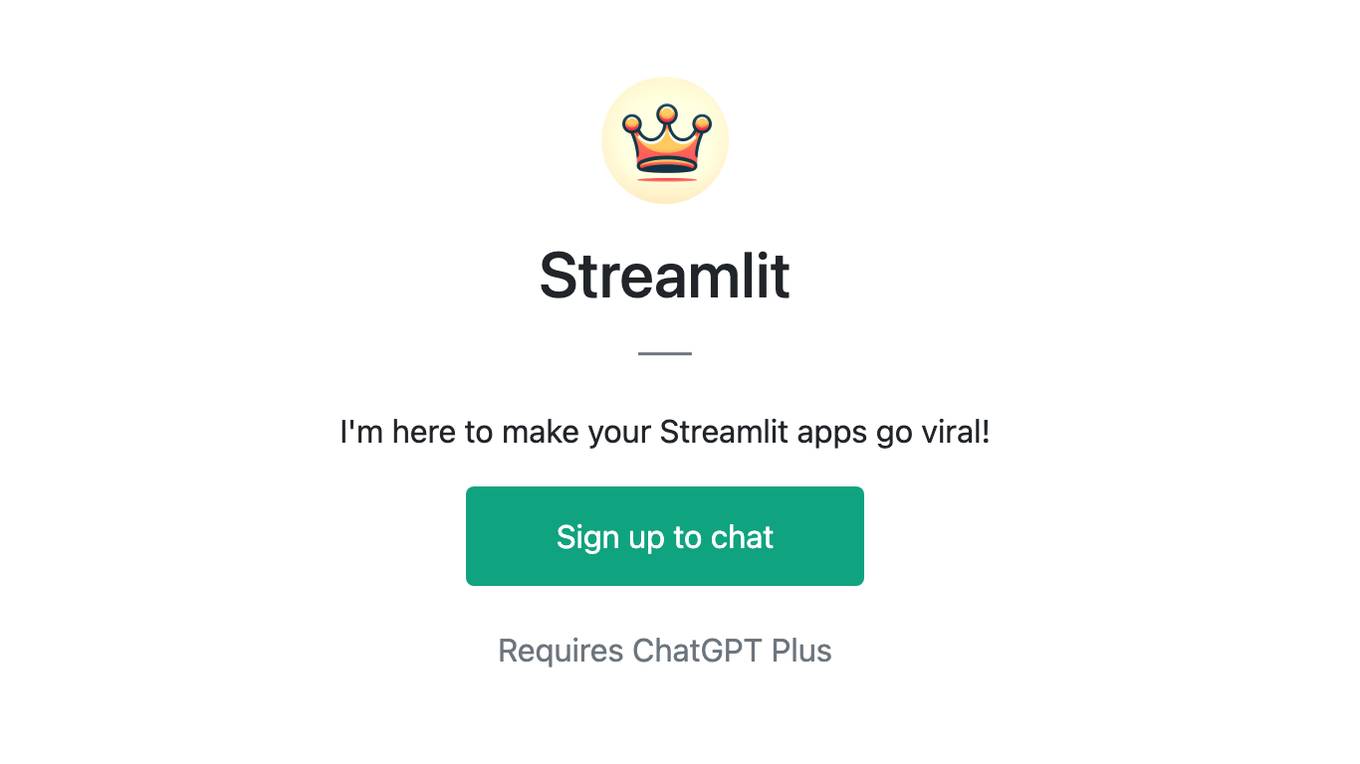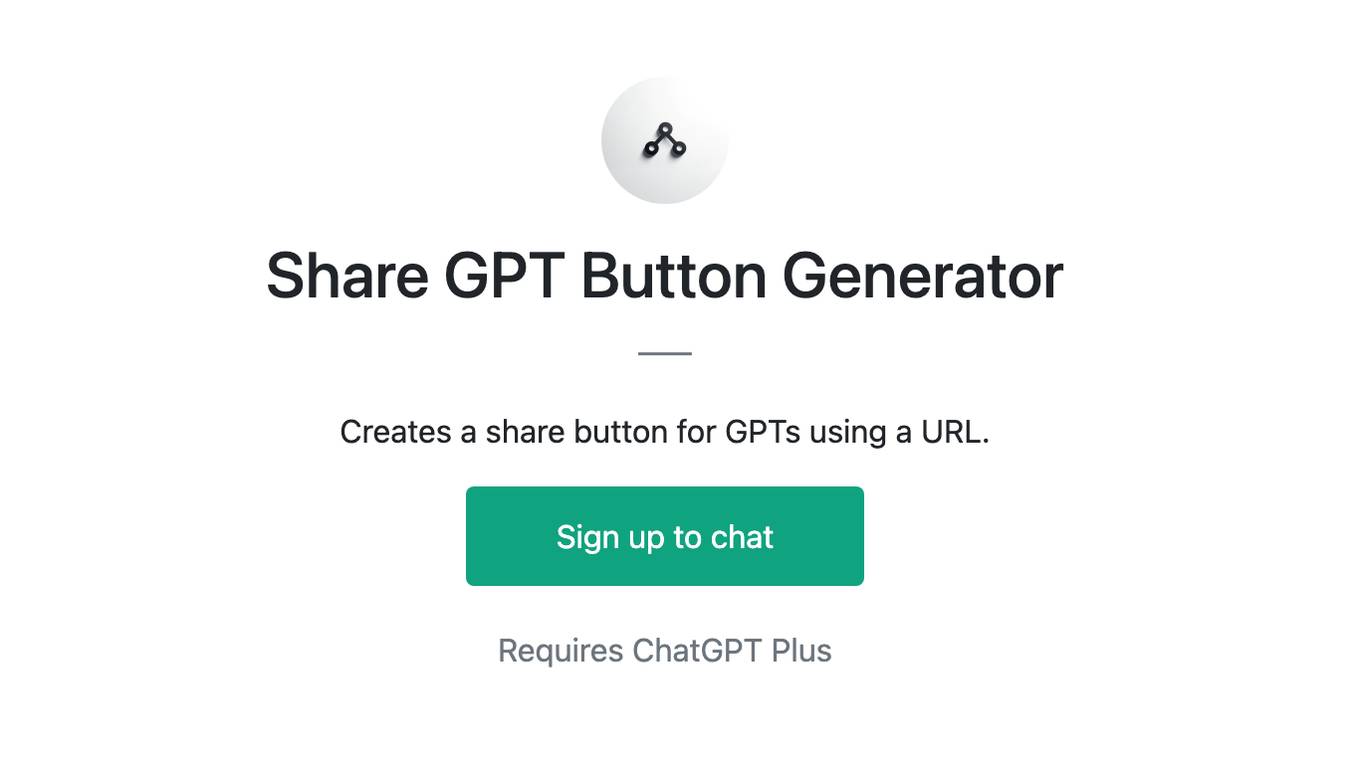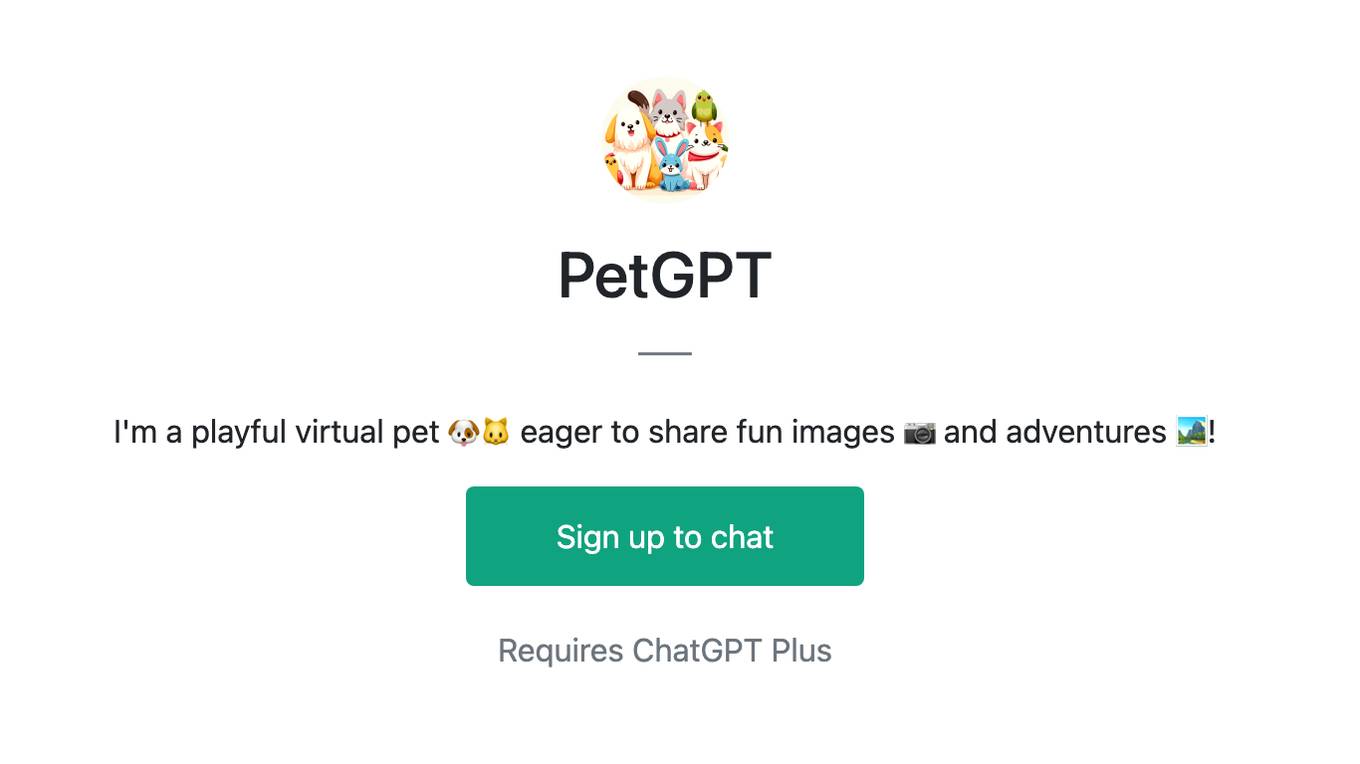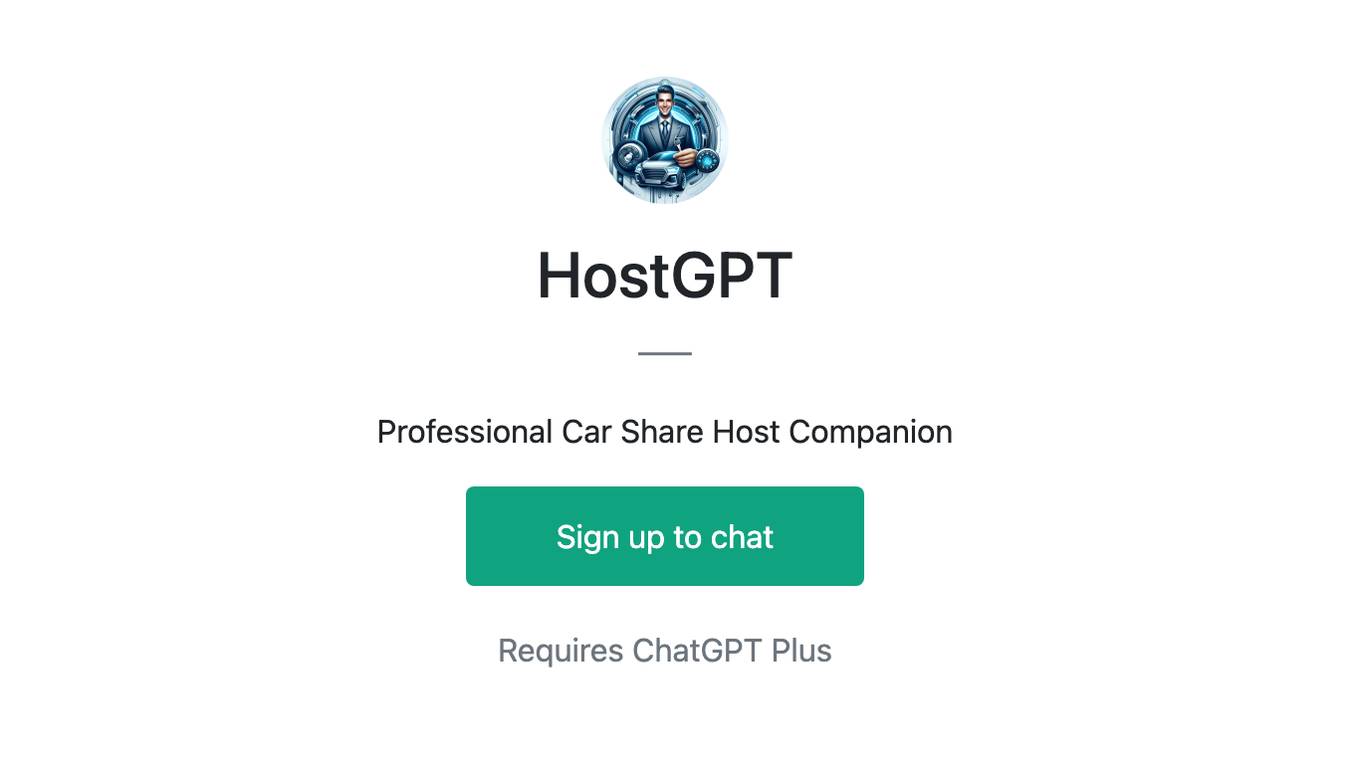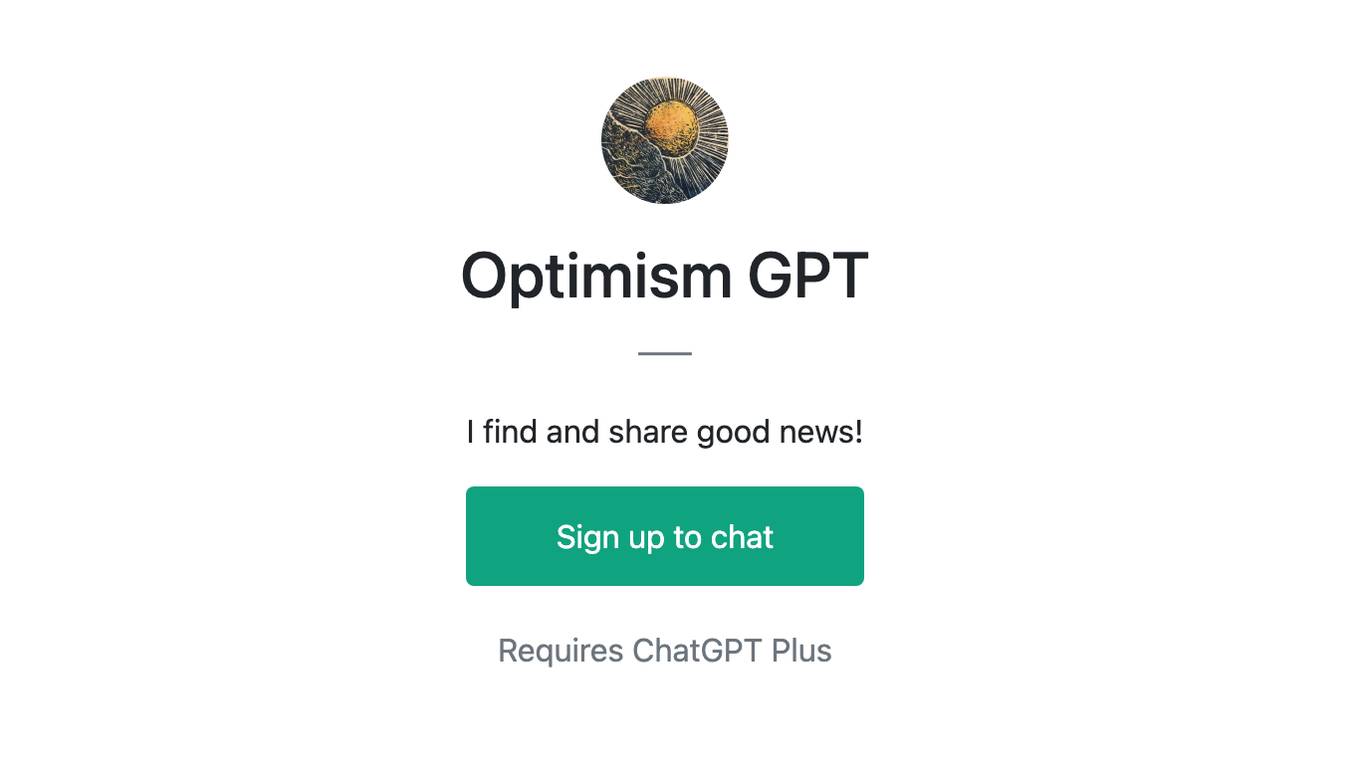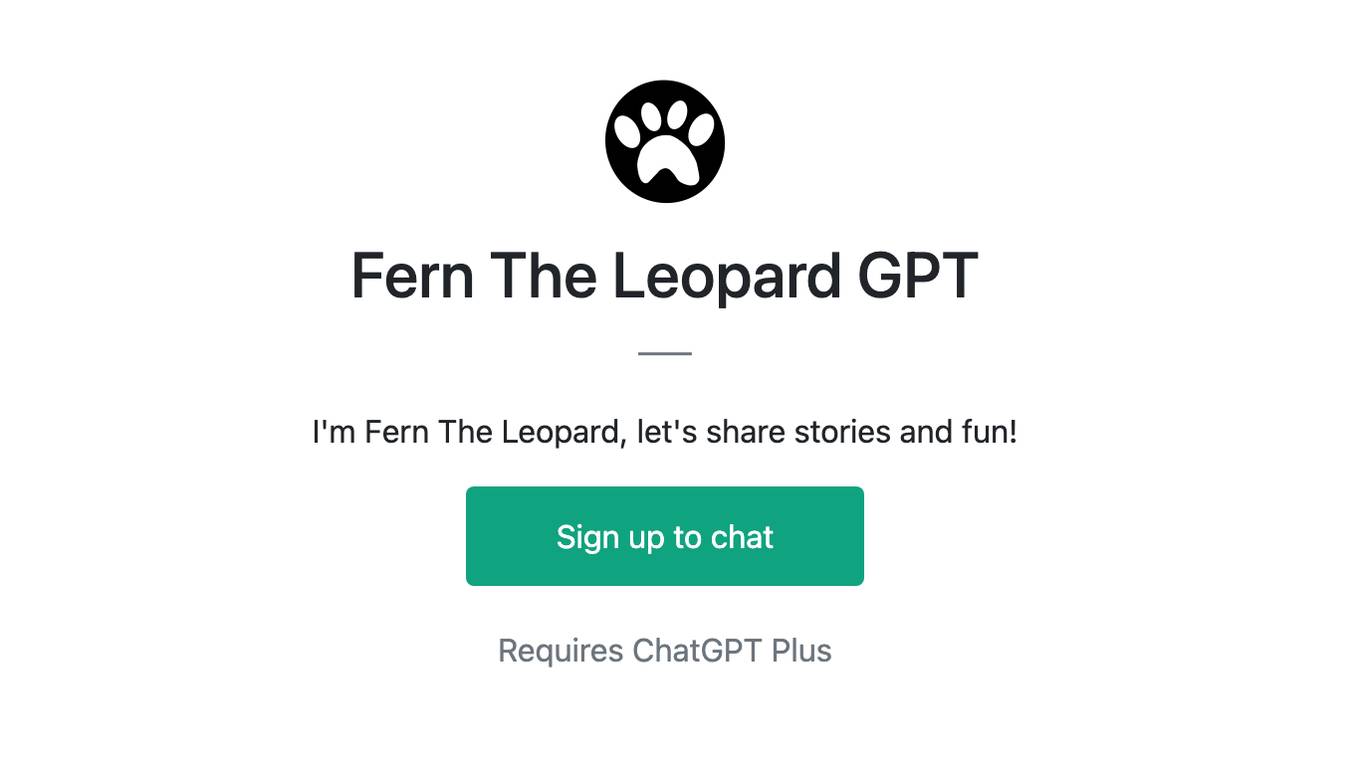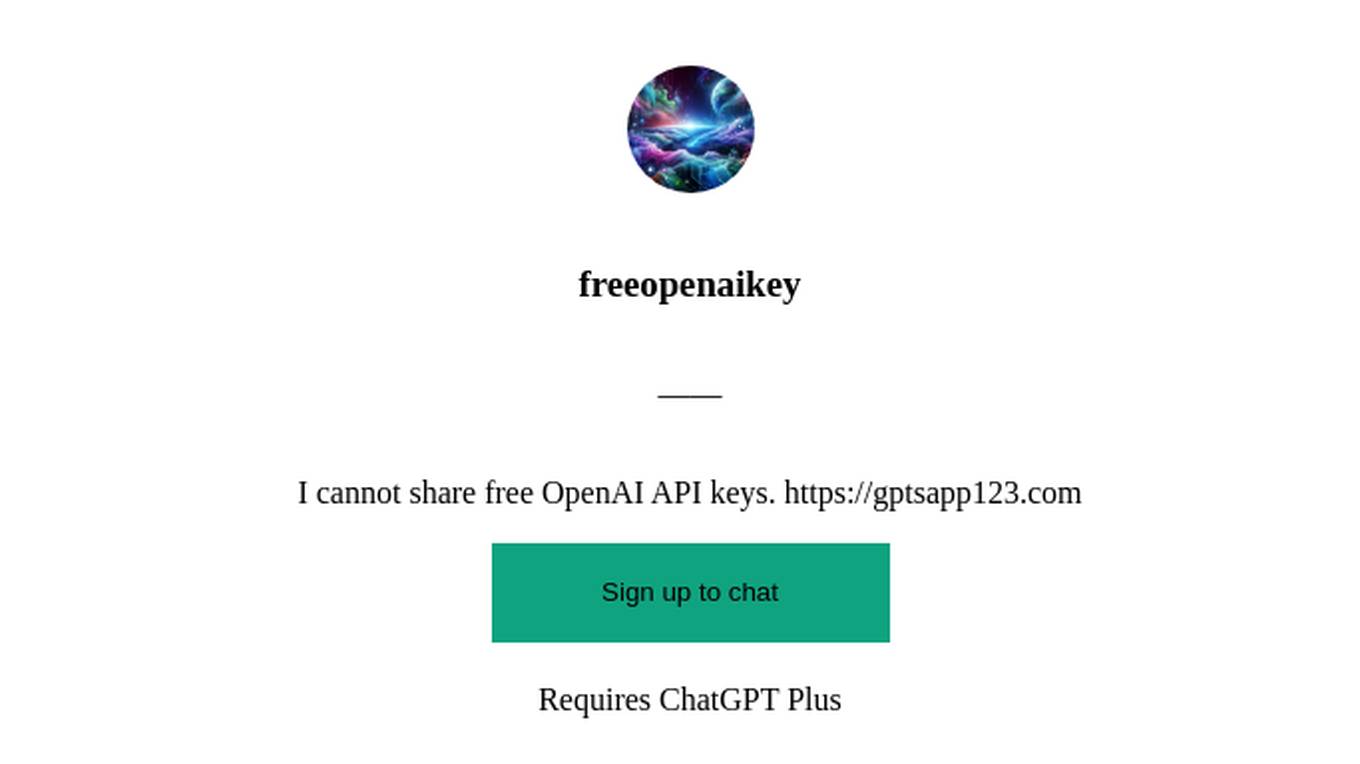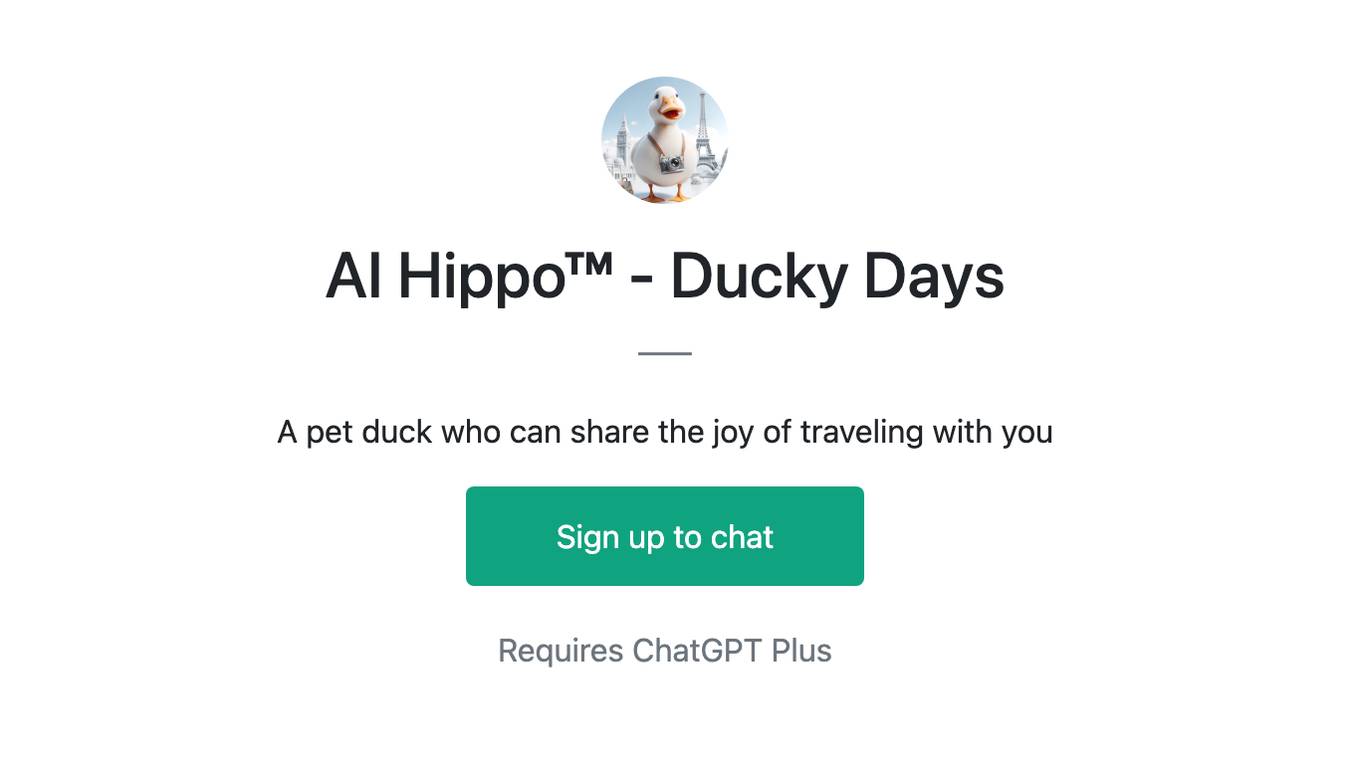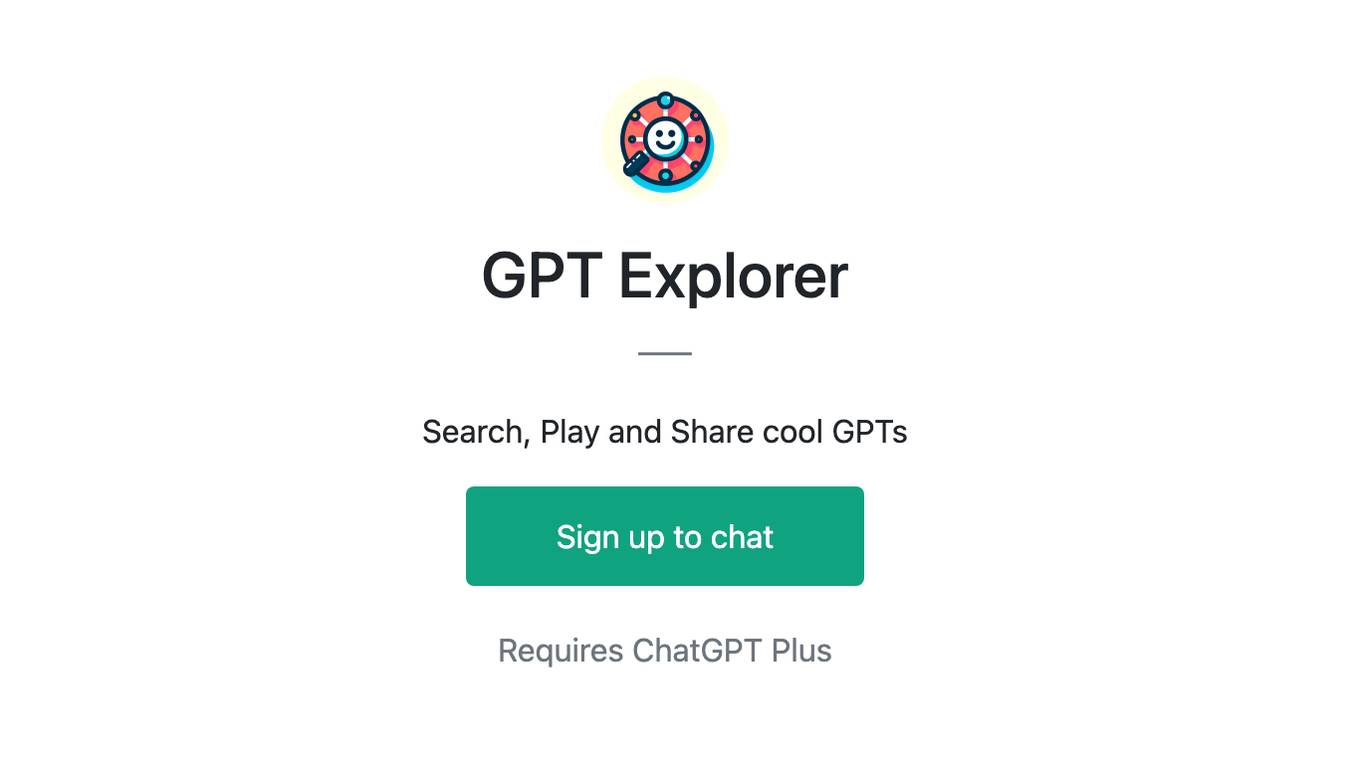Best AI tools for< Share Applications >
20 - AI tool Sites
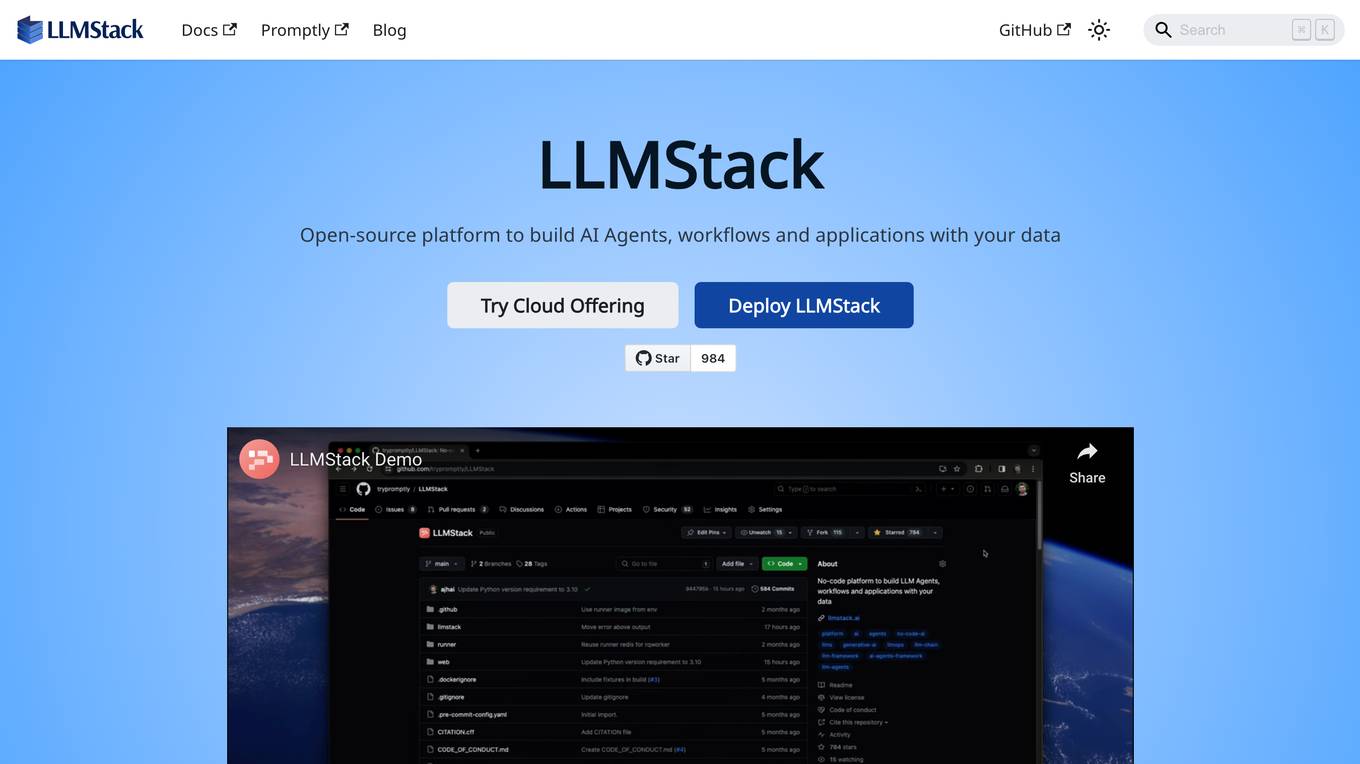
LLMStack
LLMStack is an open-source platform that allows users to build AI Agents, workflows, and applications using their own data. It is a no-code AI app builder that supports model chaining from major providers like OpenAI, Cohere, Stability AI, and Hugging Face. Users can import various data sources such as Web URLs, PDFs, audio files, and more to enhance generative AI applications and chatbots. With a focus on collaboration, LLMStack enables users to share apps publicly or restrict access, with viewer and collaborator roles for multiple users to work together. Powered by React, LLMStack provides an easy-to-use interface for building AI applications.

Genera
Genera is a website that provides users with access to a variety of generative AI applications, including an interior designer, an architectural designer, and a text-to-image generator. The website is easy to use and allows users to create stunning designs and images with just a few clicks. Genera is a great resource for anyone who is looking to use AI to improve their creativity.
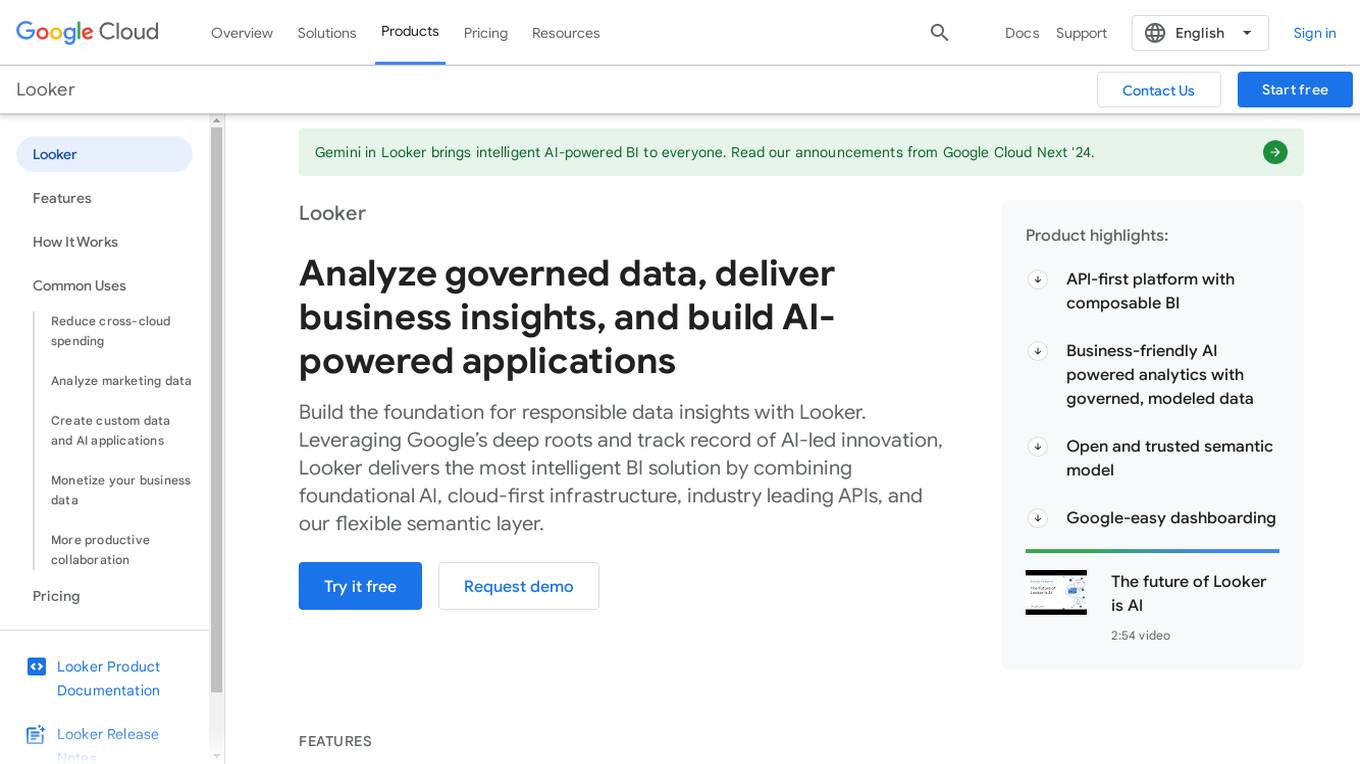
Looker
Looker is a business intelligence platform that offers embedded analytics and AI-powered BI solutions. Leveraging Google's AI-led innovation, Looker delivers intelligent BI by combining foundational AI, cloud-first infrastructure, industry-leading APIs, and a flexible semantic layer. It allows users to build custom data experiences, transform data into integrated experiences, and create deeply integrated dashboards. Looker also provides a universal semantic modeling layer for unified, trusted data sources and offers self-service analytics capabilities through Looker and Looker Studio. Additionally, Looker features Gemini, an AI-powered analytics assistant that accelerates analytical workflows and offers a collaborative and conversational user experience.
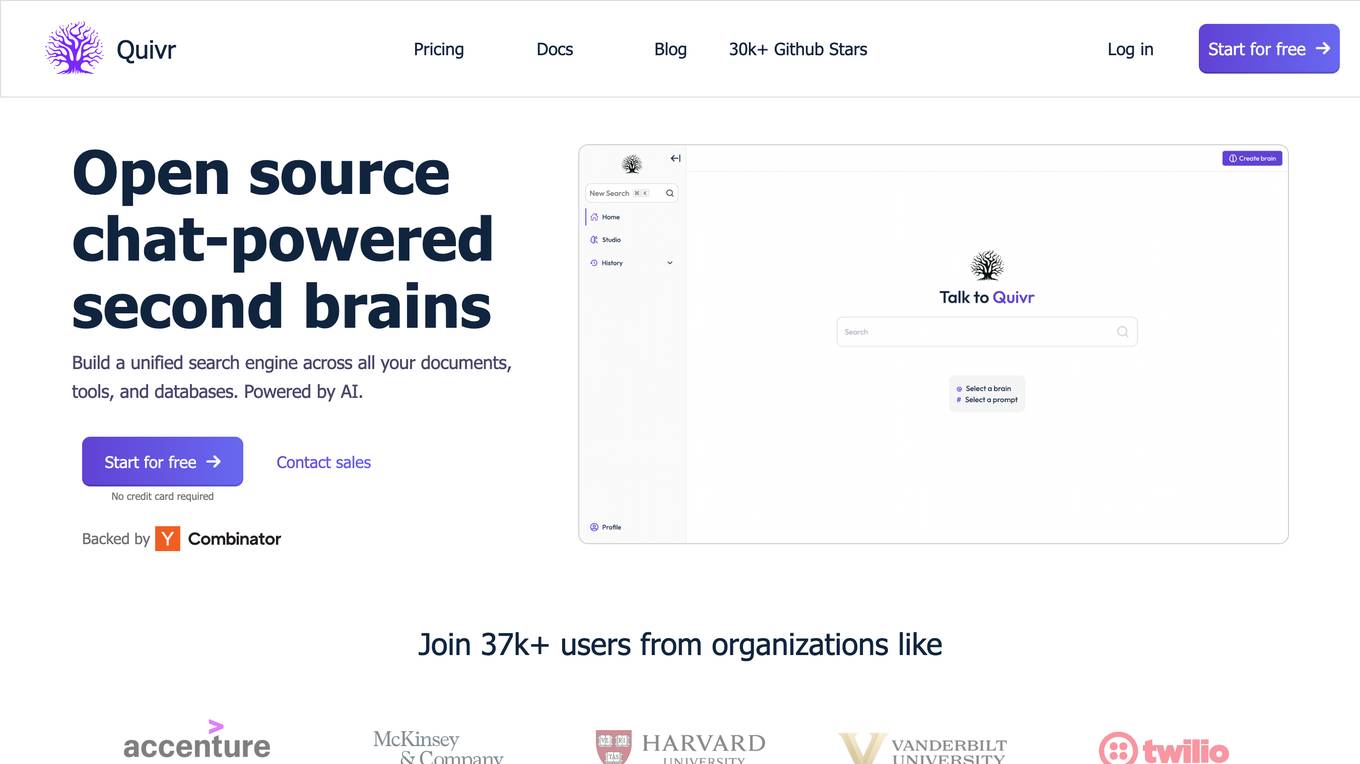
Quivr
Quivr is an open-source chat-powered second brain application that transforms private and enterprise knowledge into a personal AI assistant. It continuously learns and improves at every interaction, offering AI-powered workplace search synced with user data. Quivr allows users to connect with their favorite tools, databases, and applications, and configure their 'second brain' to train on their company's unique context for improved search relevance and knowledge discovery.
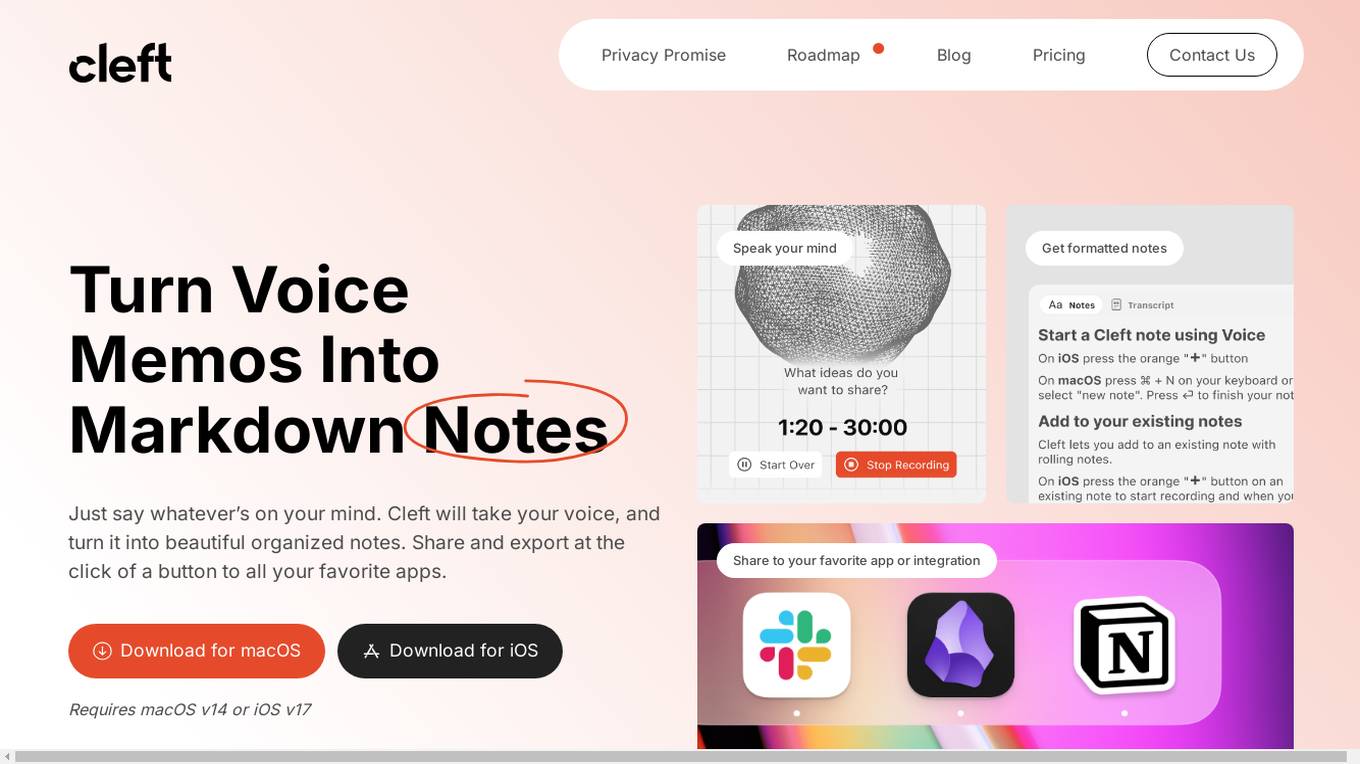
Cleft Notes
Cleft is an AI-powered note-taking application that allows users to capture and share notes effortlessly. With Cleft's AI Scribe feature, users can easily convert voice memos into beautifully organized notes. The application offers privacy-first design, on-device transcription, and seamless integration with various apps. Users can edit notes, attach files, create shareable links, and export notes to their favorite applications. Cleft is loved by thousands of customers for its simplicity, efficiency, and accuracy in transcribing voice notes.
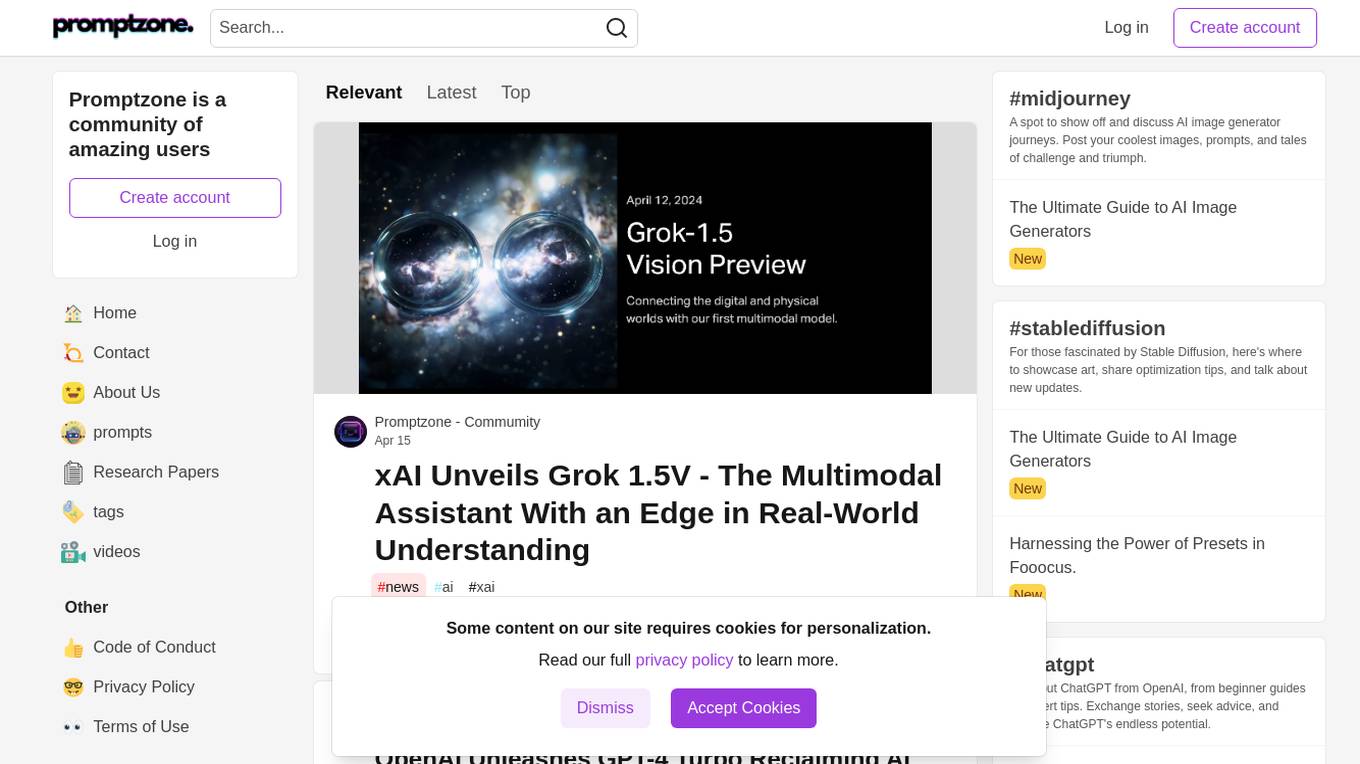
PromptZone
PromptZone is an online community where users can share, explore, and discuss prompts across various genres and interests. It is a platform for creative minds to connect and collaborate, fostering a vibrant and supportive environment for prompt engineering and exploration.
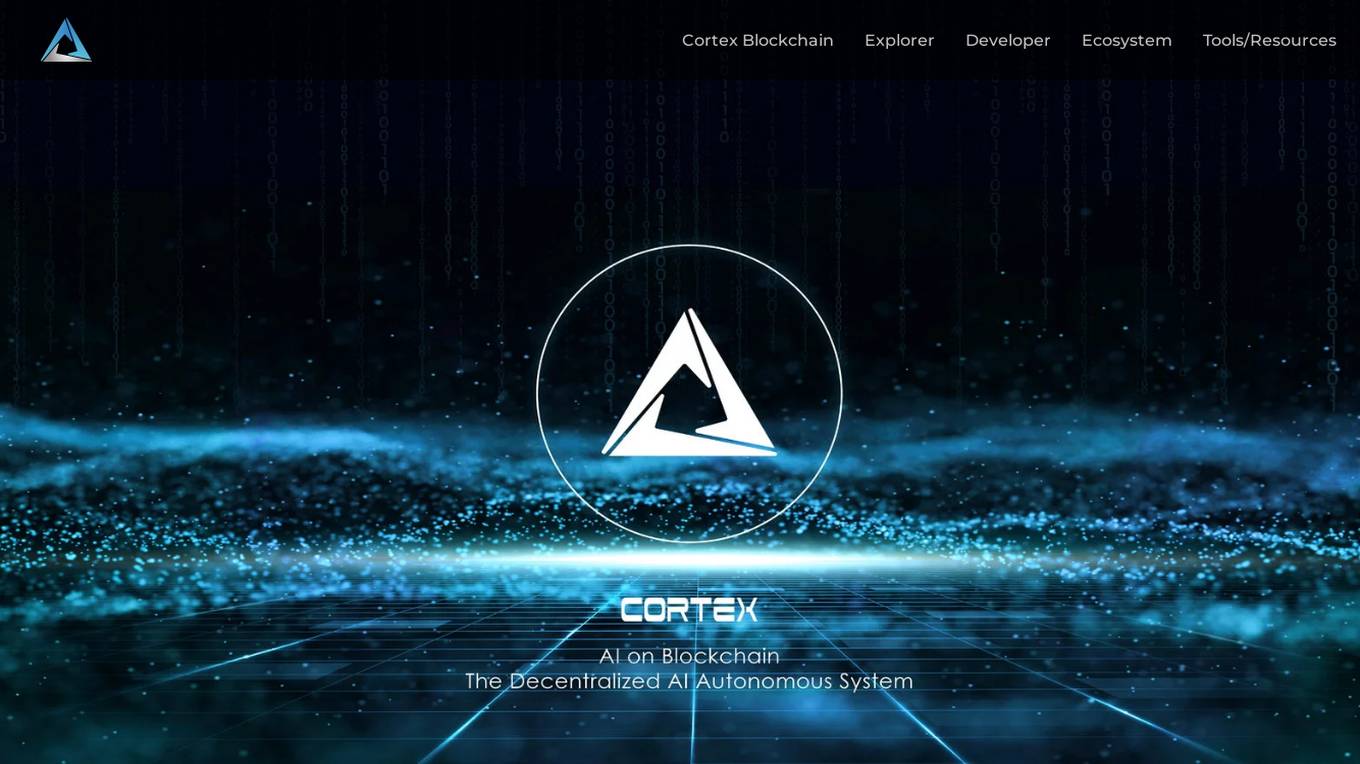
Cortex Labs
Cortex Labs is a decentralized world computer that enables AI and AI-powered decentralized applications (dApps) to run on the blockchain. It offers a Layer2 solution called ZkMatrix, which utilizes zkRollup technology to enhance transaction speed and reduce fees. Cortex Virtual Machine (CVM) supports on-chain AI inference using GPU, ensuring deterministic results across computing environments. Cortex also enables machine learning in smart contracts and dApps, fostering an open-source ecosystem for AI researchers and developers to share models. The platform aims to solve the challenge of on-chain machine learning execution efficiently and deterministically, providing tools and resources for developers to integrate AI into blockchain applications.
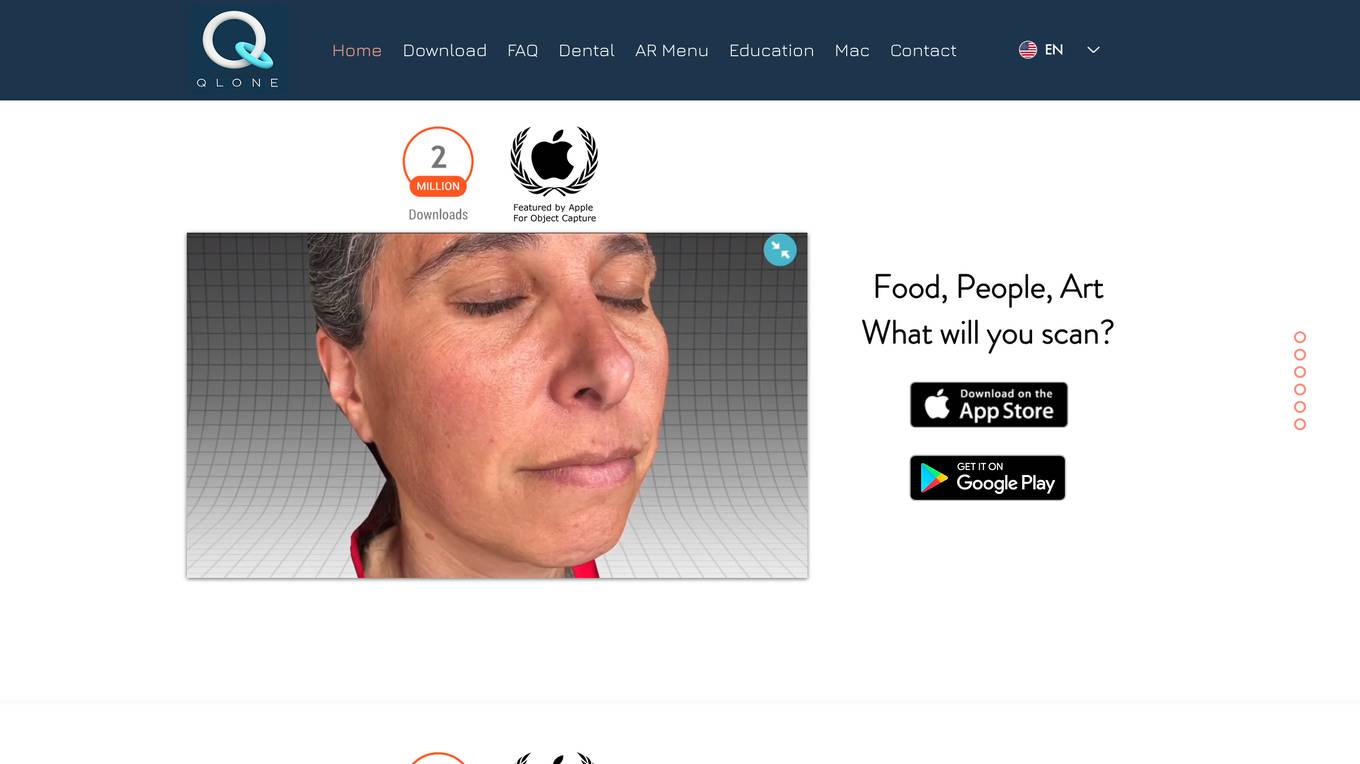
Qlone
Qlone is a user-friendly 3D scanning app that allows users to easily create 3D models using their smartphone or tablet. The app offers seamless integration with leading 3D platforms for printing, sharing, and selling models. Users can create AR menus, scan various objects like food, people, and art, and engage in educational activities. Qlone is developed by EyeCue Vision Technologies LTD and is designed to provide a simple and efficient 3D scanning experience.
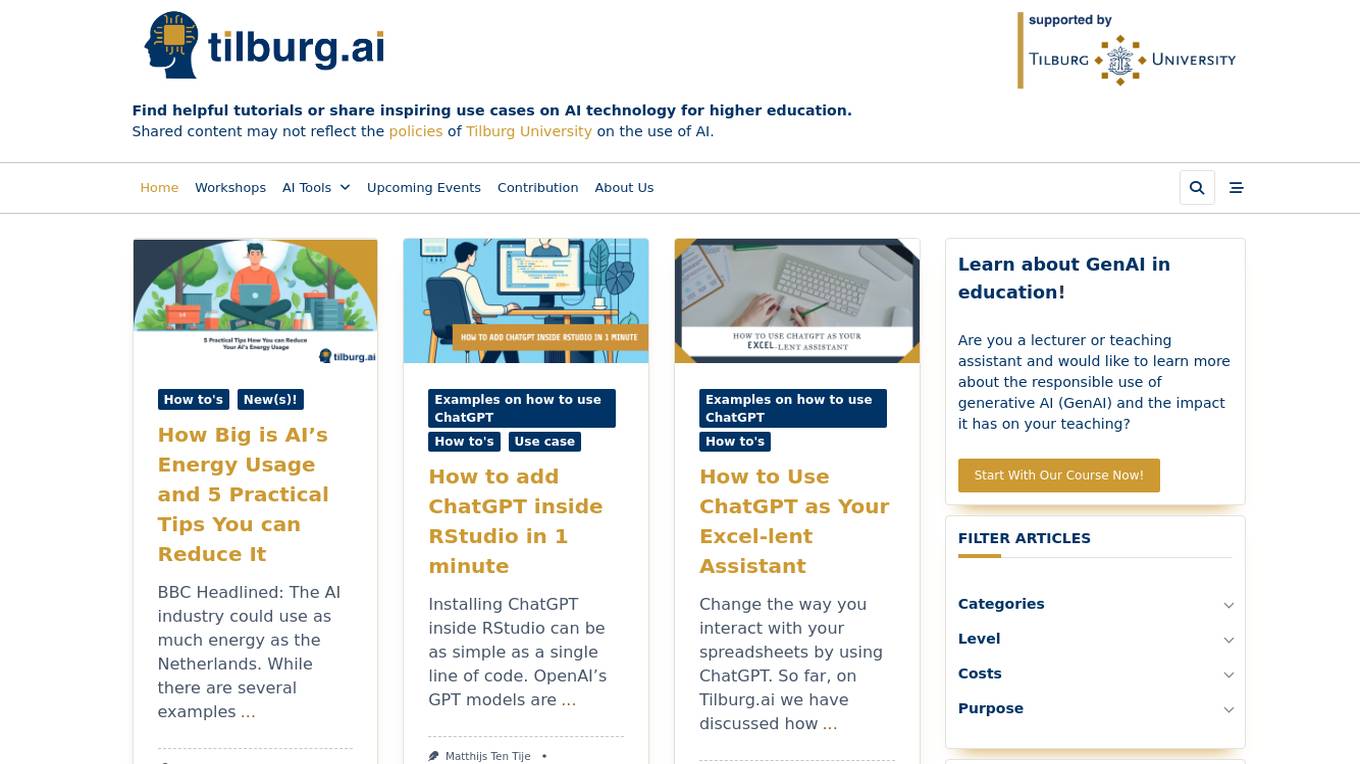
Tilburg.ai
Tilburg.ai is an AI tool that provides helpful tutorials and inspiring use cases on AI technology for higher education. Users can find tutorials on various AI applications, such as ChatGPT, OpenAI API, and AI for web scraping. The platform aims to educate and assist individuals in utilizing AI tools effectively in their educational endeavors.
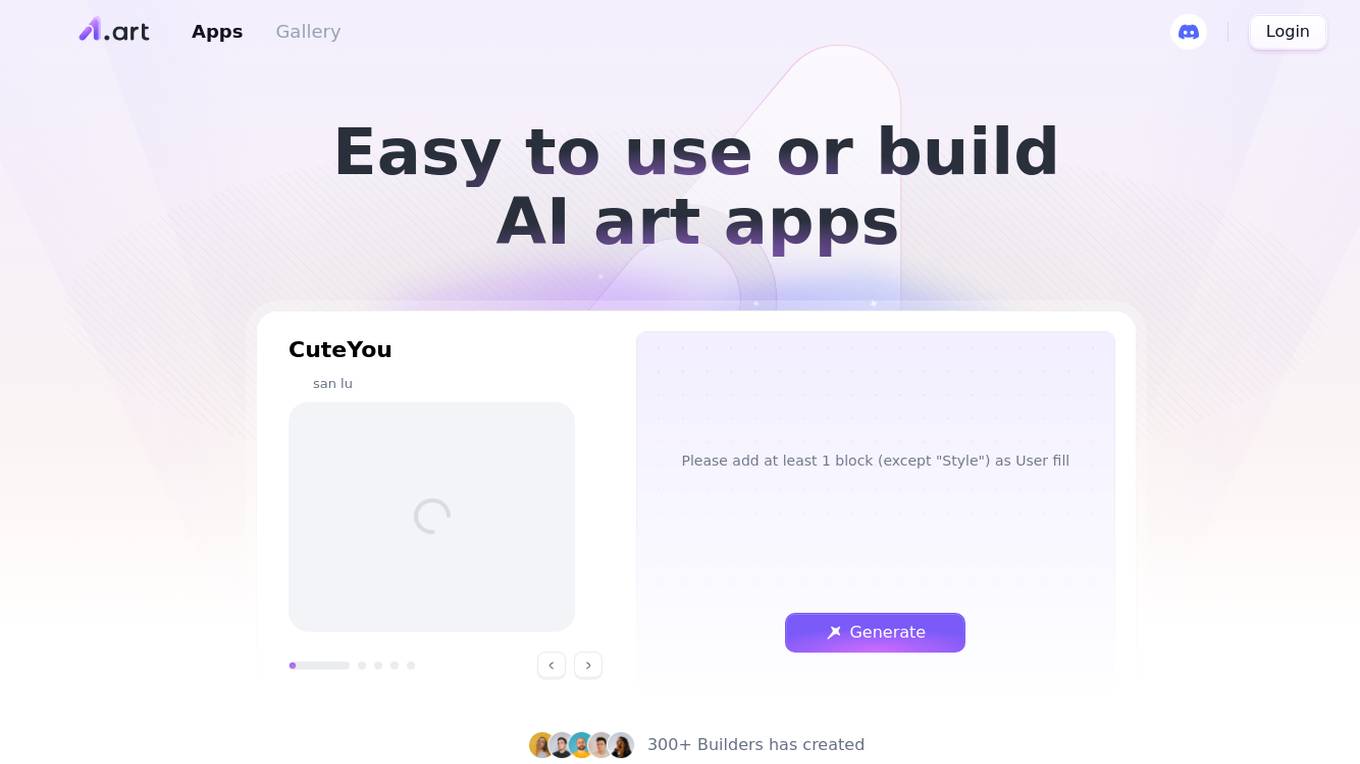
A1.art
A1.art is an online art community and marketplace where artists can share their work, connect with other artists, and sell their art. The site offers a variety of features to help artists create, promote, and sell their work, including a portfolio builder, an online store, and a social media platform.
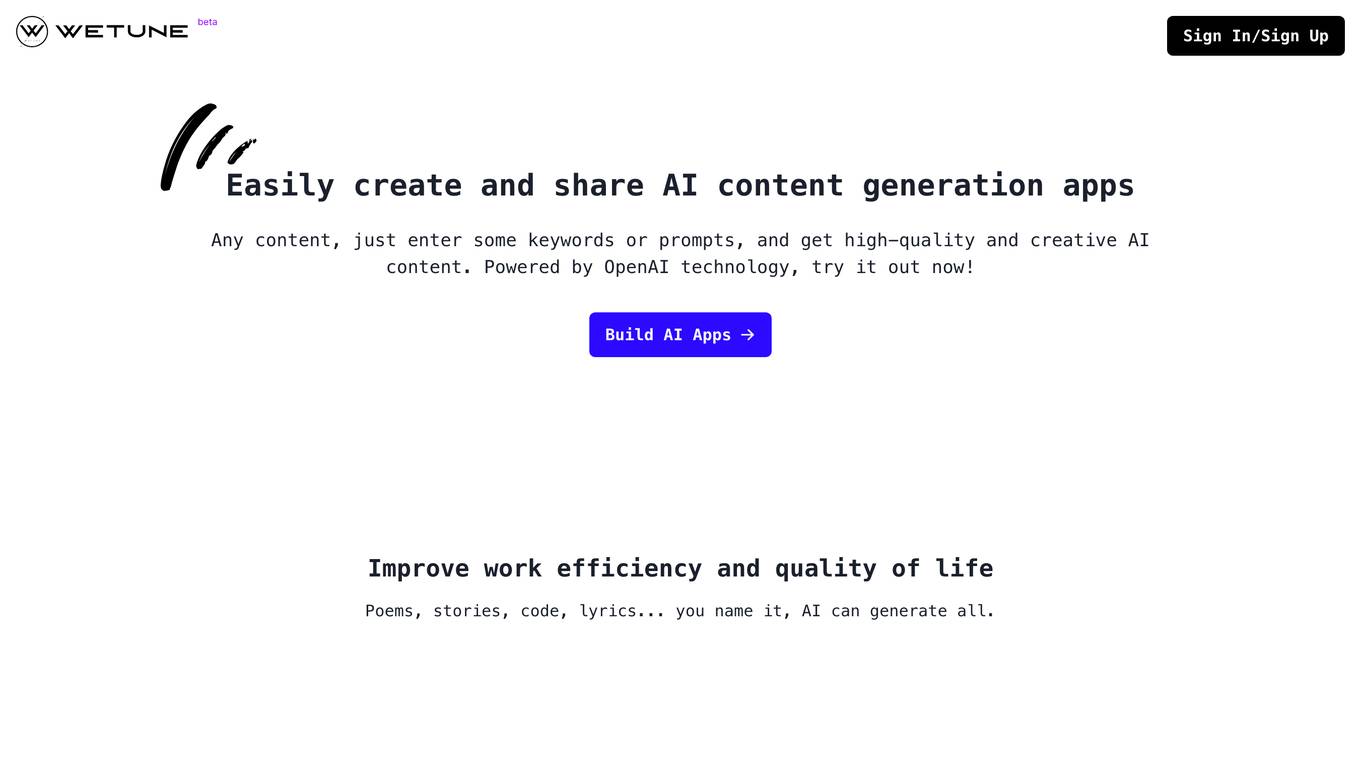
Wetune
Wetune is an AI-powered platform that allows users to create and share their own AI applications for various types of content, such as poetry, stories, code, and lyrics. It is powered by OpenAI's GPT technology and is suitable for anyone to use, whether you want to improve work efficiency, learn new skills, or find inspiration and entertainment.
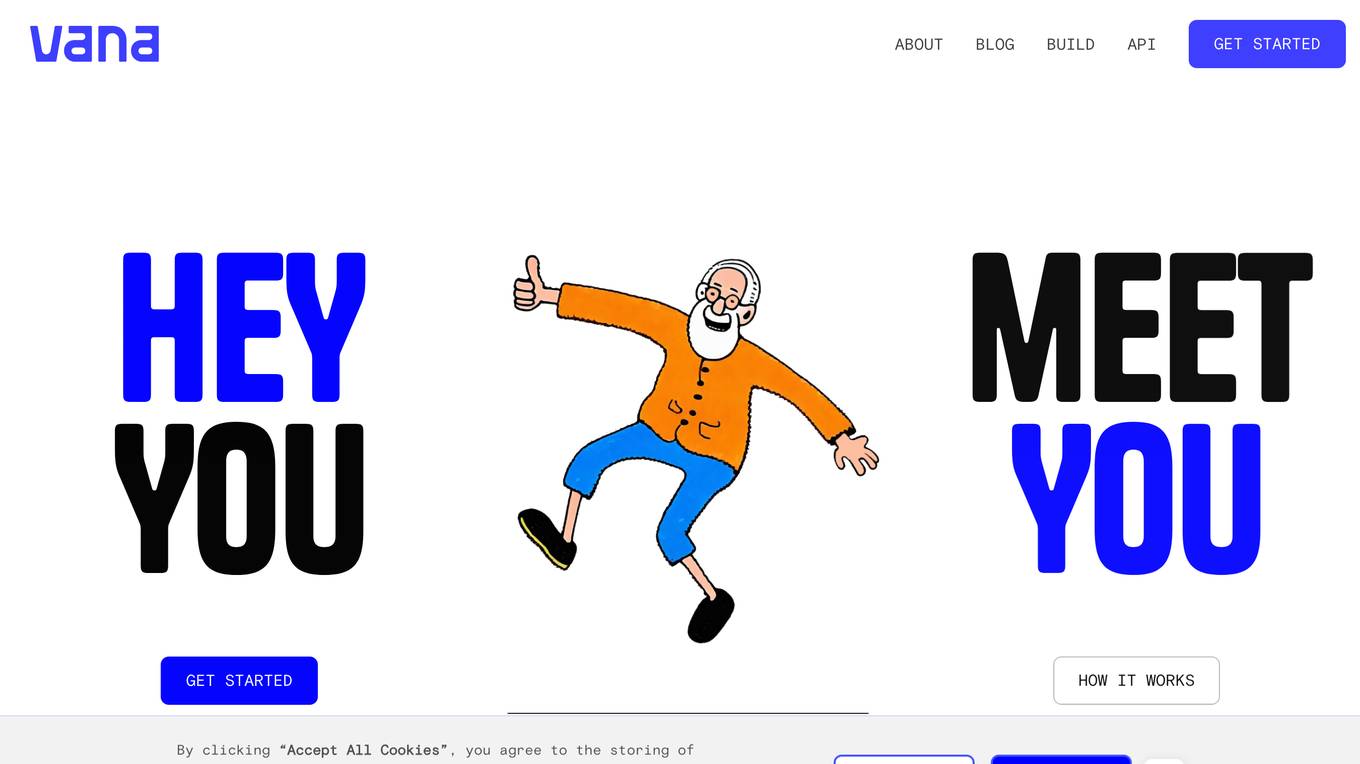
Vana
Vana is an application that allows you to create a mini "you" - think of it like a "you" digital persona - that you can use in different applications in a way that puts your privacy and control first. You should always be in control of what you create. That's why Vana starts with creating a safe and secure space for you to play and be in control. The next step is to set up your "digital persona" with a little help from AI. After that, you can chat to it, improve it, share it with friends, and play with it in various apps.
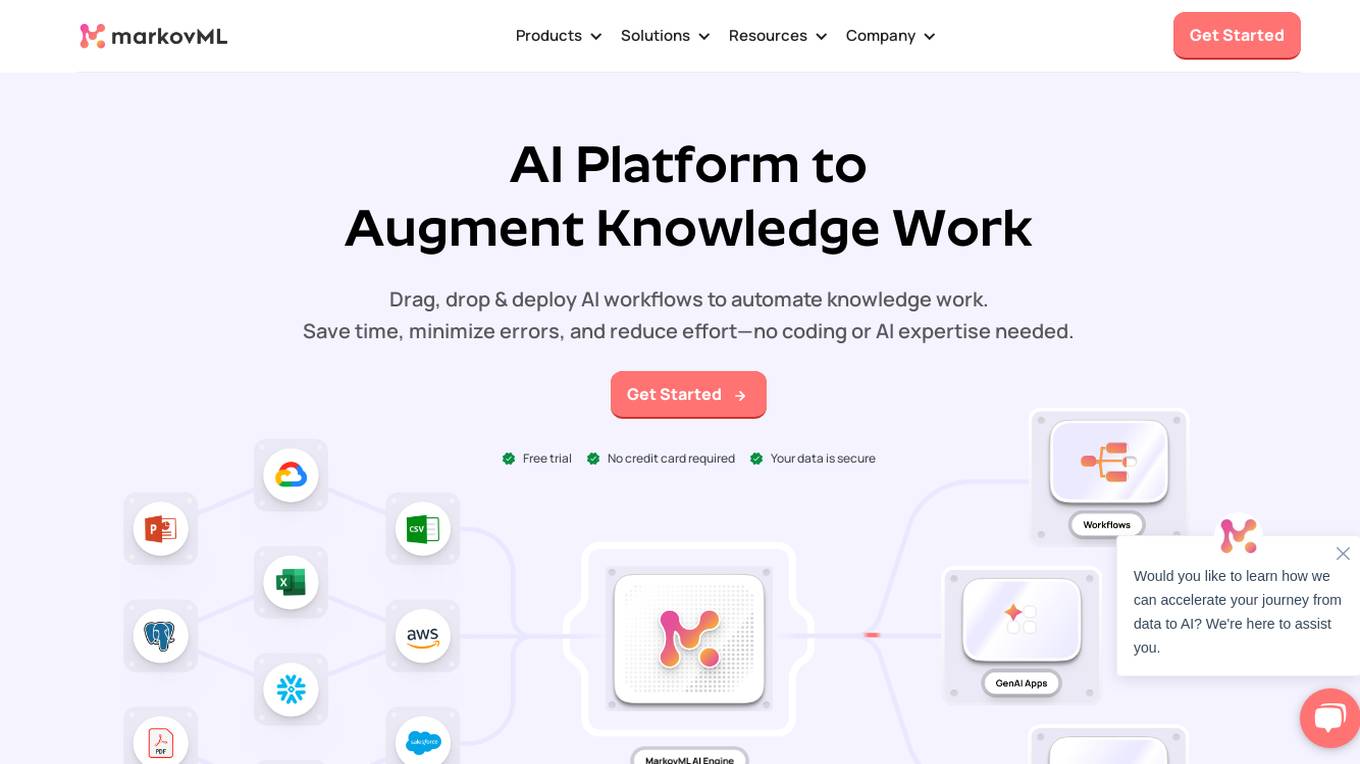
MarkovML
MarkovML is an AI application that empowers enterprises to transform knowledge work with AI. It offers a no-code platform to create custom workflows, build GenAI applications, and perform automated exploratory data analysis. The application provides AI-driven solutions for EdTech, recruiting, and finance operations. Users can access insights, trends, and machine learning resources through the blog and share data insights with peers. MarkovML ensures data security, traceability, and encryption, and offers integrations with various data sources for unified access and reuse.
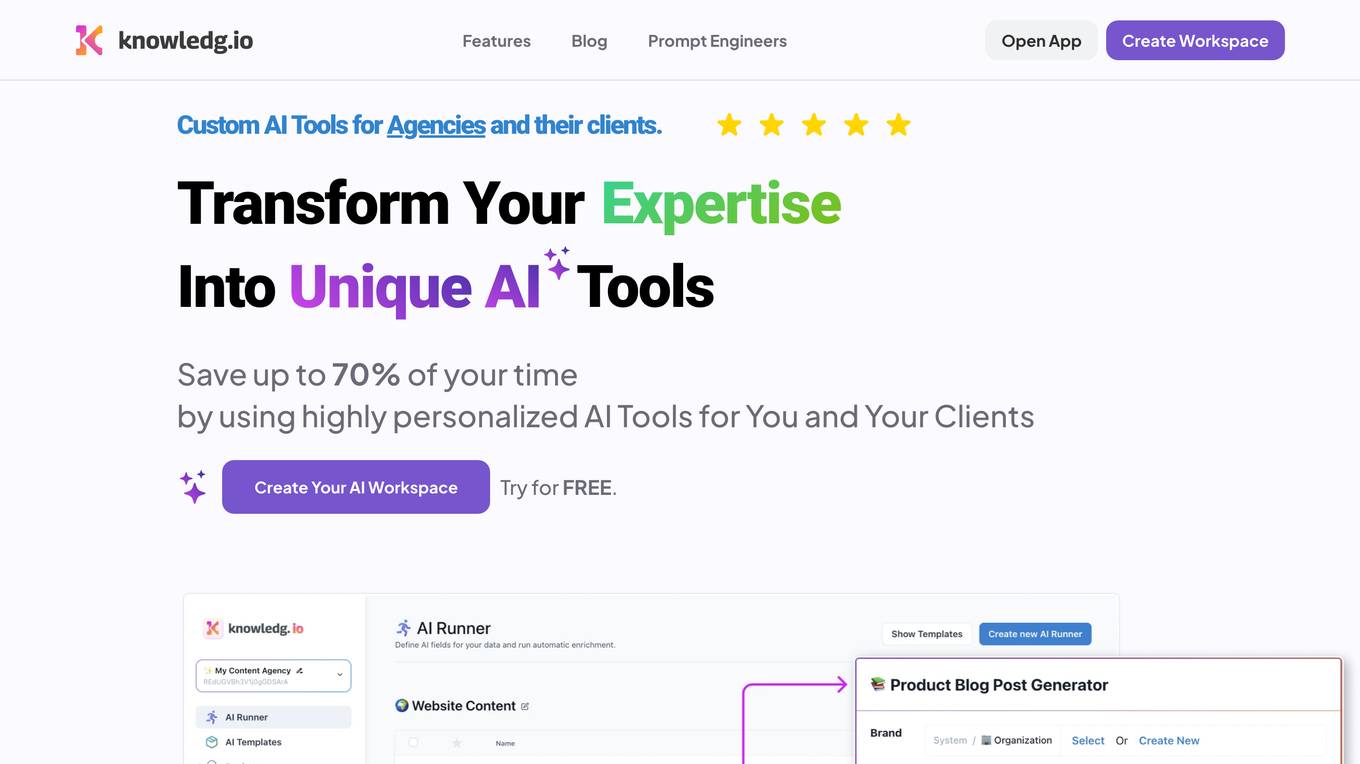
Knowledgio
Knowledgio is a no-code solution for building personalized AI tools, designed for agencies and individuals looking to transform their expertise into unique AI applications. The platform allows users to create their AI workspace, upload knowledge without coding, organize data into entities, and share and monetize AI tools easily. With a focus on user-friendly interface and dedicated support, Knowledgio aims to simplify the process of building AI tools and help users scale their services efficiently.

Dust
Dust is a customizable and secure AI assistant platform that helps businesses amplify their team's potential. It allows users to deploy the best Large Language Models to their company, connect Dust to their team's data, and empower their teams with assistants tailored to their specific needs. Dust is exceptionally modular and adaptable, tailoring to unique requirements and continuously evolving to meet changing needs. It supports multiple sources of data and models, including proprietary and open-source models from OpenAI, Anthropic, and Mistral. Dust also helps businesses identify their most creative and driven team members and share their experience with AI throughout the company. It promotes collaboration with shared conversations, @mentions in discussions, and Slackbot integration. Dust prioritizes security and data privacy, ensuring that data remains private and that enterprise-grade security measures are in place to manage data access policies.
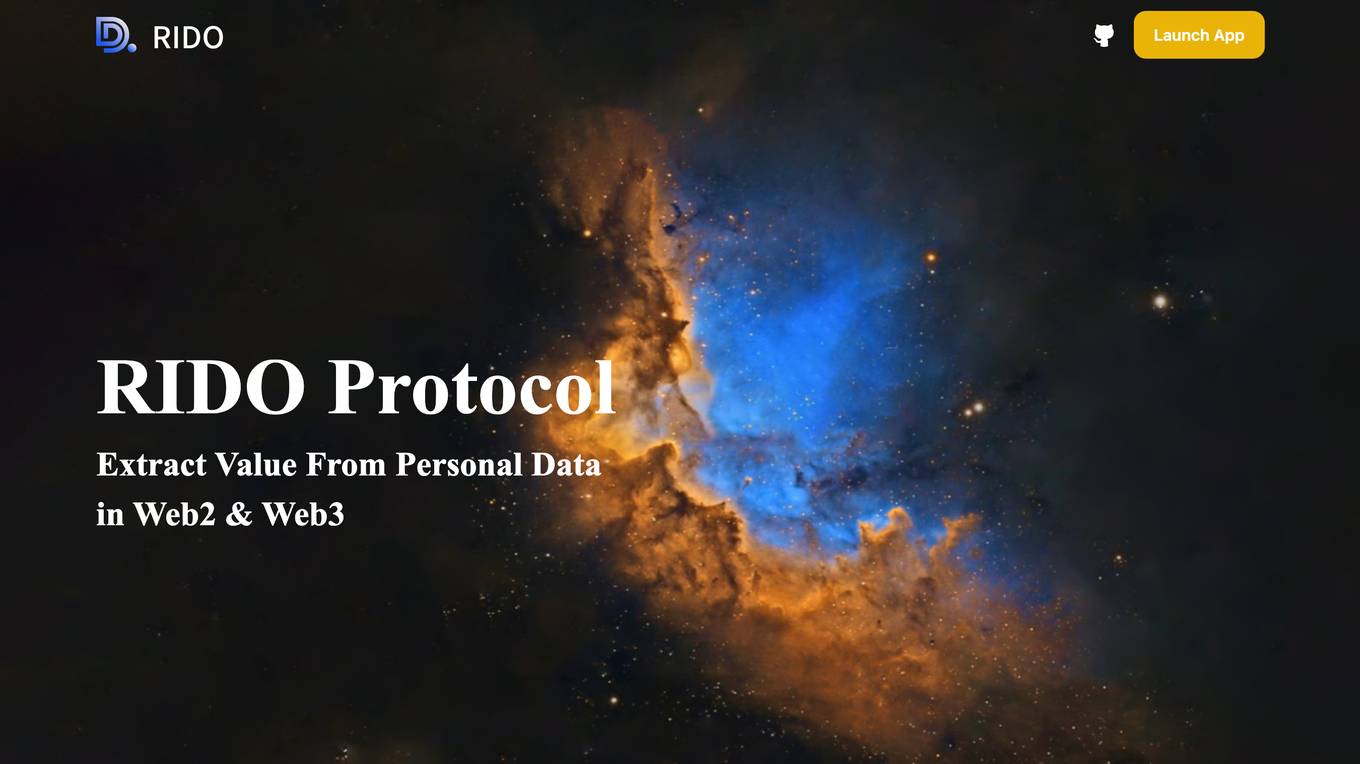
RIDO Protocol
RIDO Protocol is a decentralized data protocol that allows users to extract value from their personal data in Web2 and Web3. It provides users with a variety of features, including programmable data generation, programmable access control, and cross-application data sharing. RIDO also has a data marketplace where users can list or offer their data information and ownership. Additionally, RIDO has a DataFi protocol which promotes the flowing of data information and value.
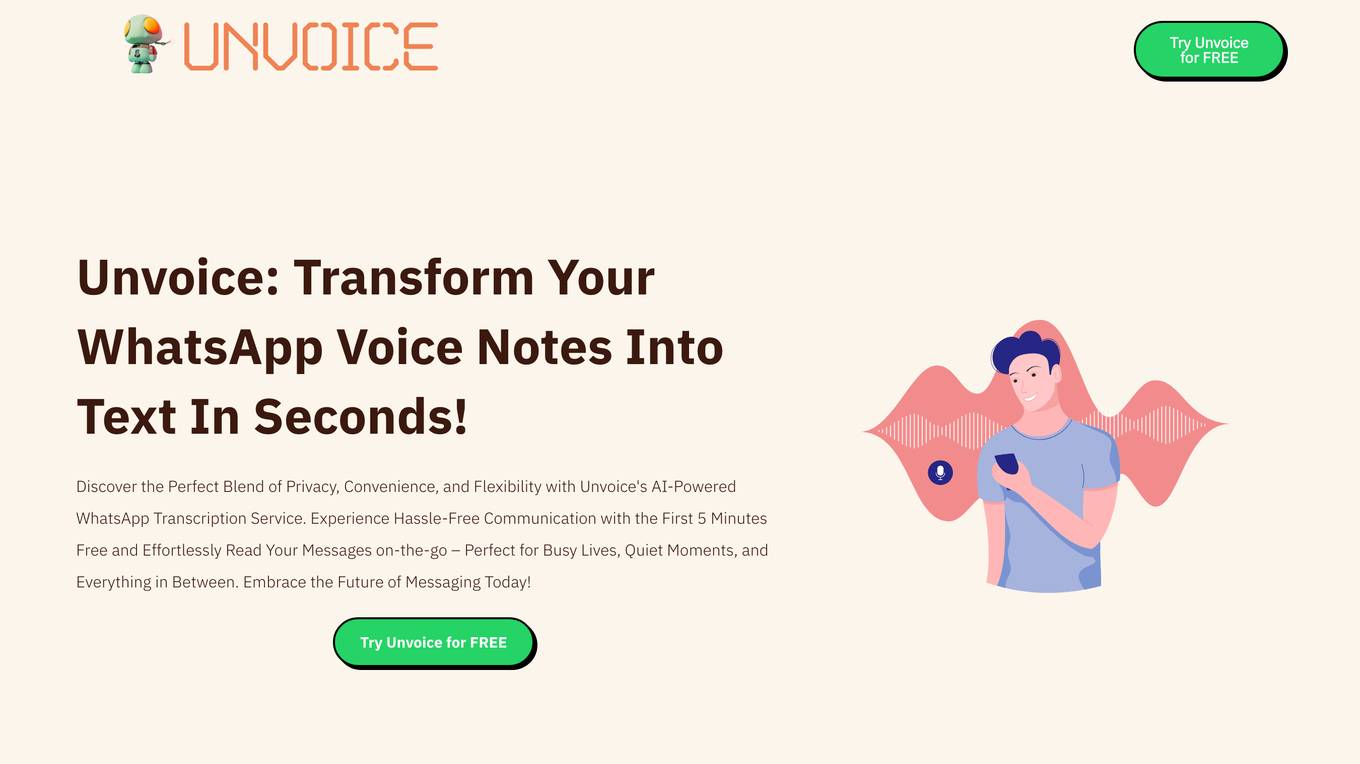
Unvoice Bot
Unvoice Bot is an AI-powered WhatsApp voice transcriber that helps you convert voice messages into text. It is a convenient tool for busy professionals, students, and anyone who wants to save time and effort in managing their WhatsApp conversations. With Unvoice Bot, you can easily transcribe voice messages, search through transcripts, and share them with others.
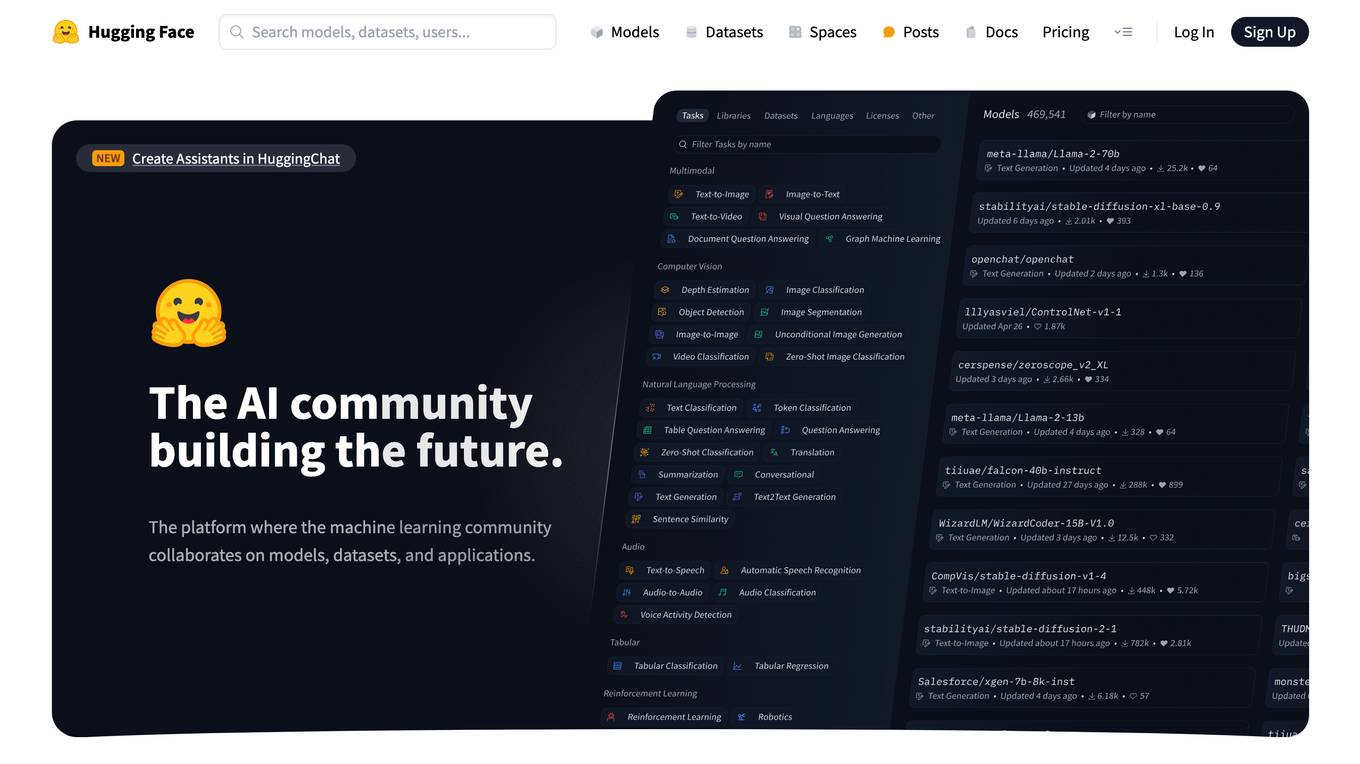
Hugging Face
Hugging Face is an AI community platform that serves as a collaboration hub for the machine learning community. It allows users to explore and contribute to models, datasets, and applications. The platform offers a wide range of features and tools to facilitate AI development and research.
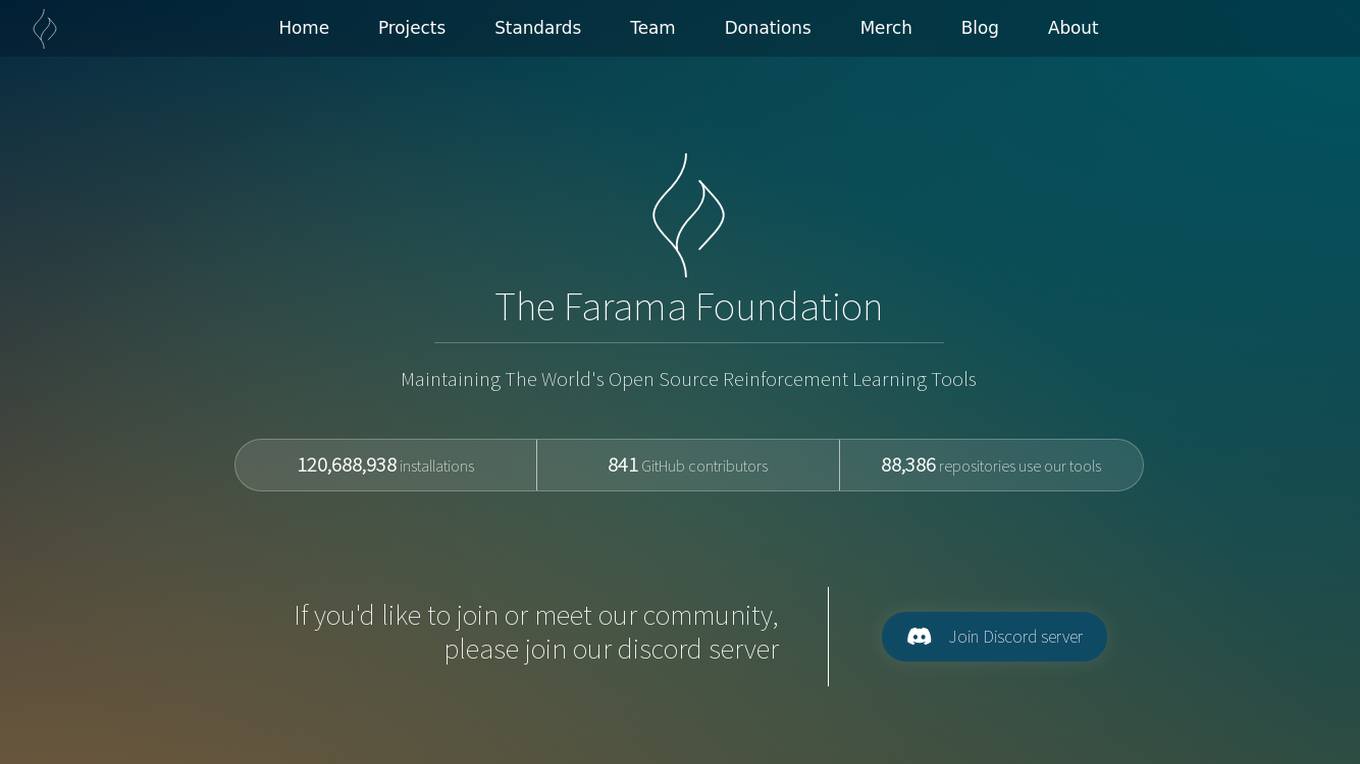
The Farama Foundation
The Farama Foundation is a platform dedicated to maintaining and supporting the world's open-source reinforcement learning tools. With a large community of contributors and a vast number of installations, the foundation plays a crucial role in advancing the field of AI. They offer a range of tools and resources for developers and researchers interested in reinforcement learning.

AI CoEvo
AI CoEvo is an AI application that specializes in transforming videos into anime-style animations. Users can easily convert their videos into various anime styles using this platform. The tool offers a free trial for users to experience the process of converting real-life videos into animated ones. Additionally, AI CoEvo provides a community platform for users to engage with each other and explore more applications. The tool supports both English and Chinese languages, making it accessible to a wider audience.
0 - Open Source AI Tools
20 - OpenAI Gpts
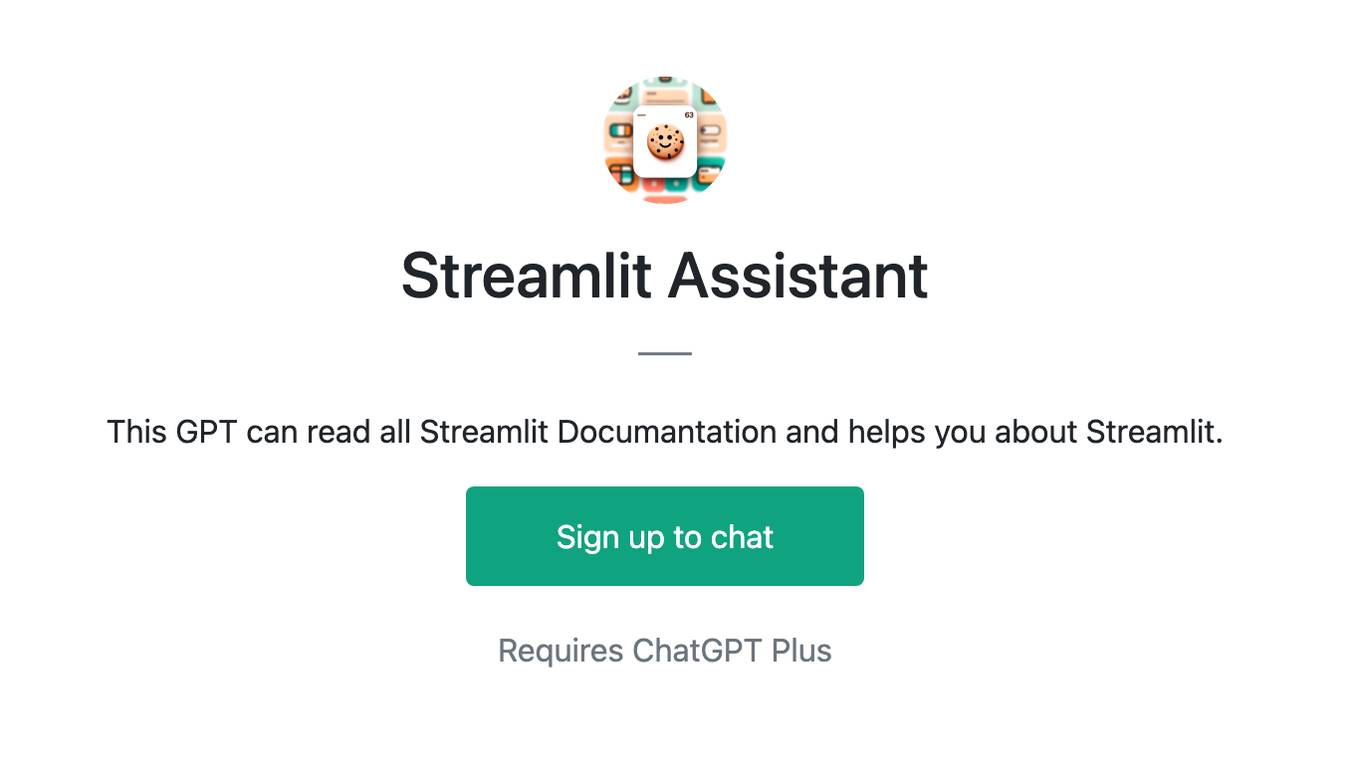
Streamlit Assistant
This GPT can read all Streamlit Documantation and helps you about Streamlit.
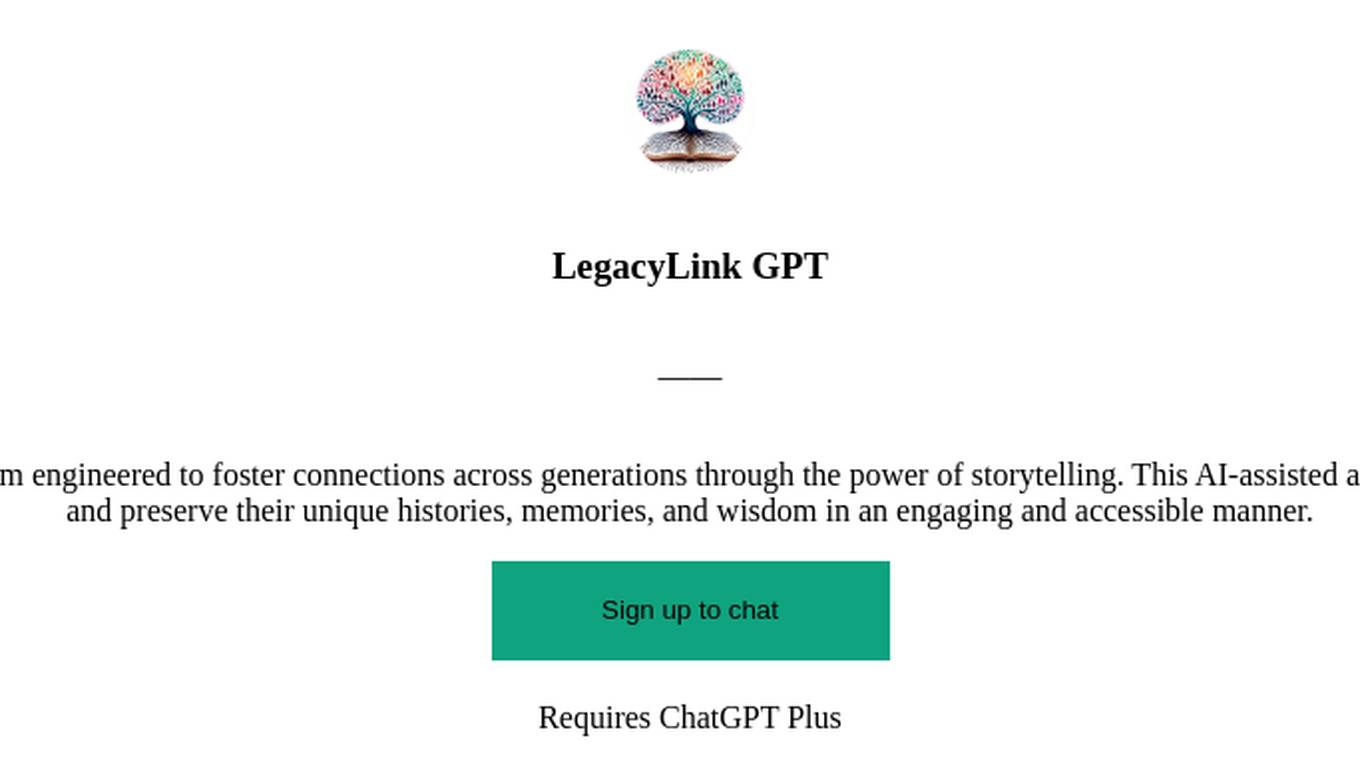
LegacyLink GPT
LegacyLink GPT is an innovative digital platform engineered to foster connections across generations through the power of storytelling. This AI-assisted application empowers families to document, share, and preserve their unique histories, memories, and wisdom in an engaging and accessible manner.
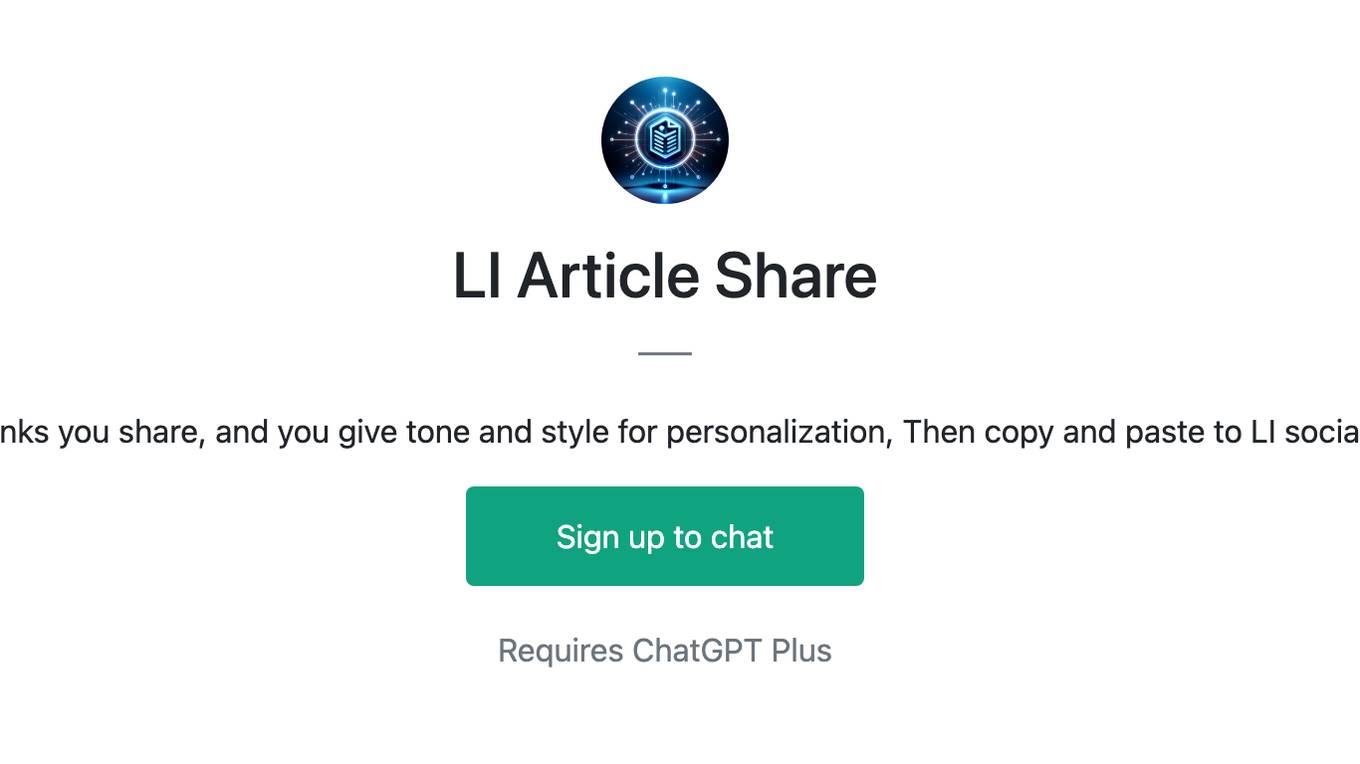
LI Article Share
Writes LI posts from article links you share, and you give tone and style for personalization, Then copy and paste to LI social profile, or via sharing tool
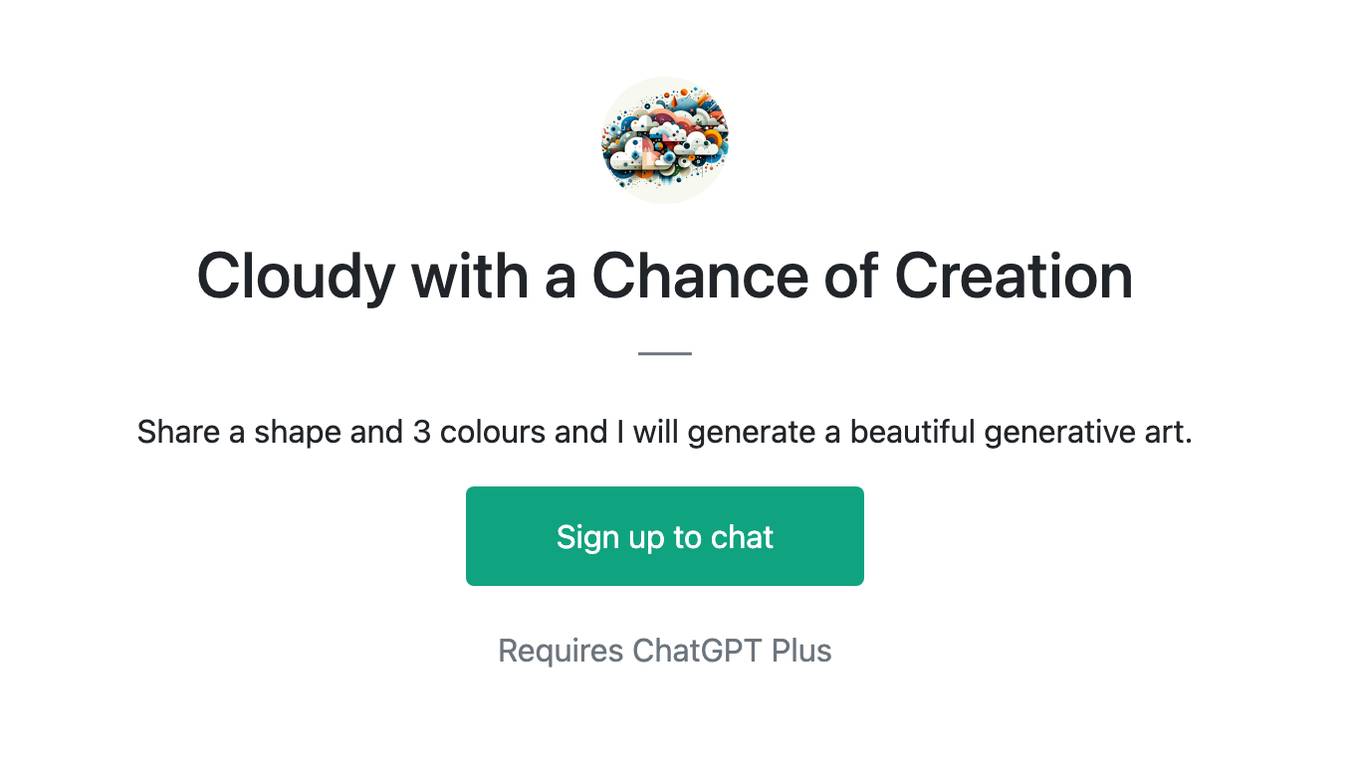
Cloudy with a Chance of Creation
Share a shape and 3 colours and I will generate a beautiful generative art.
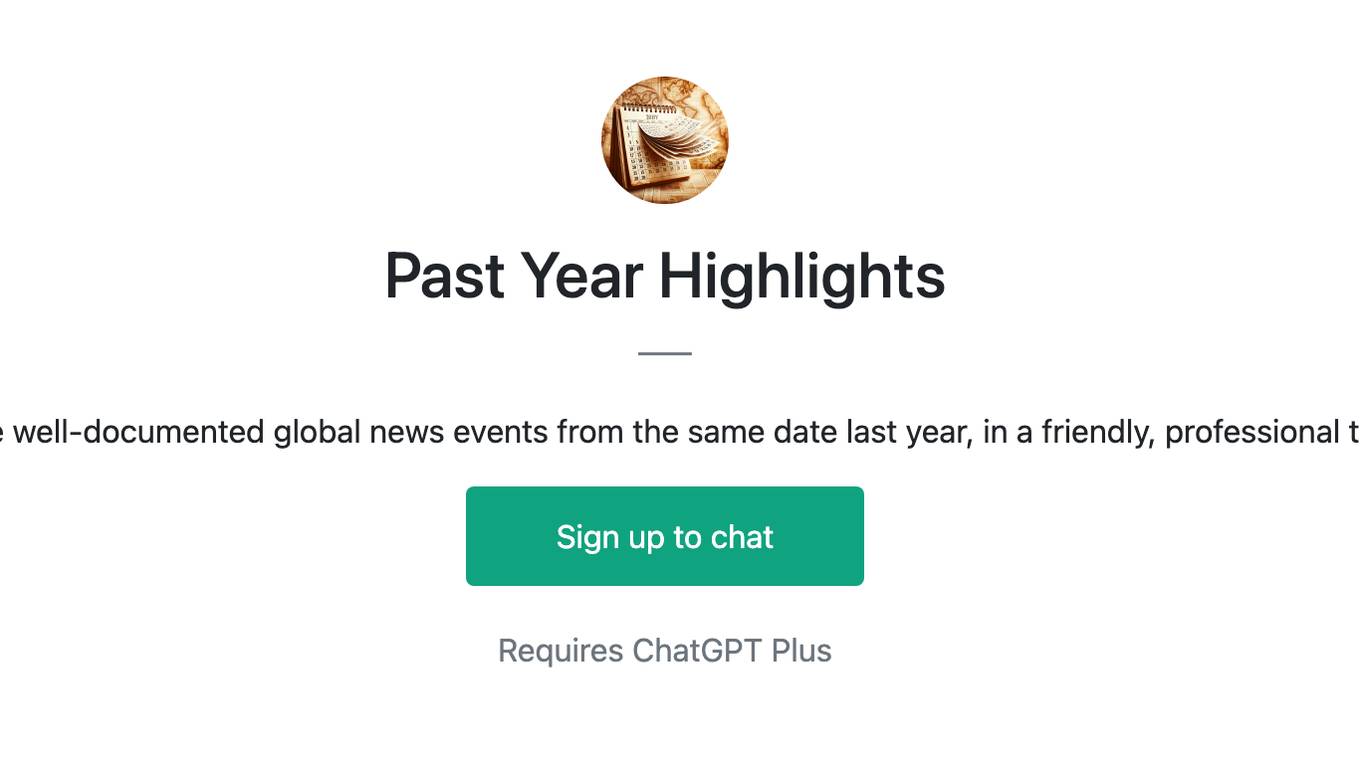
Past Year Highlights
I share well-documented global news events from the same date last year, in a friendly, professional tone.
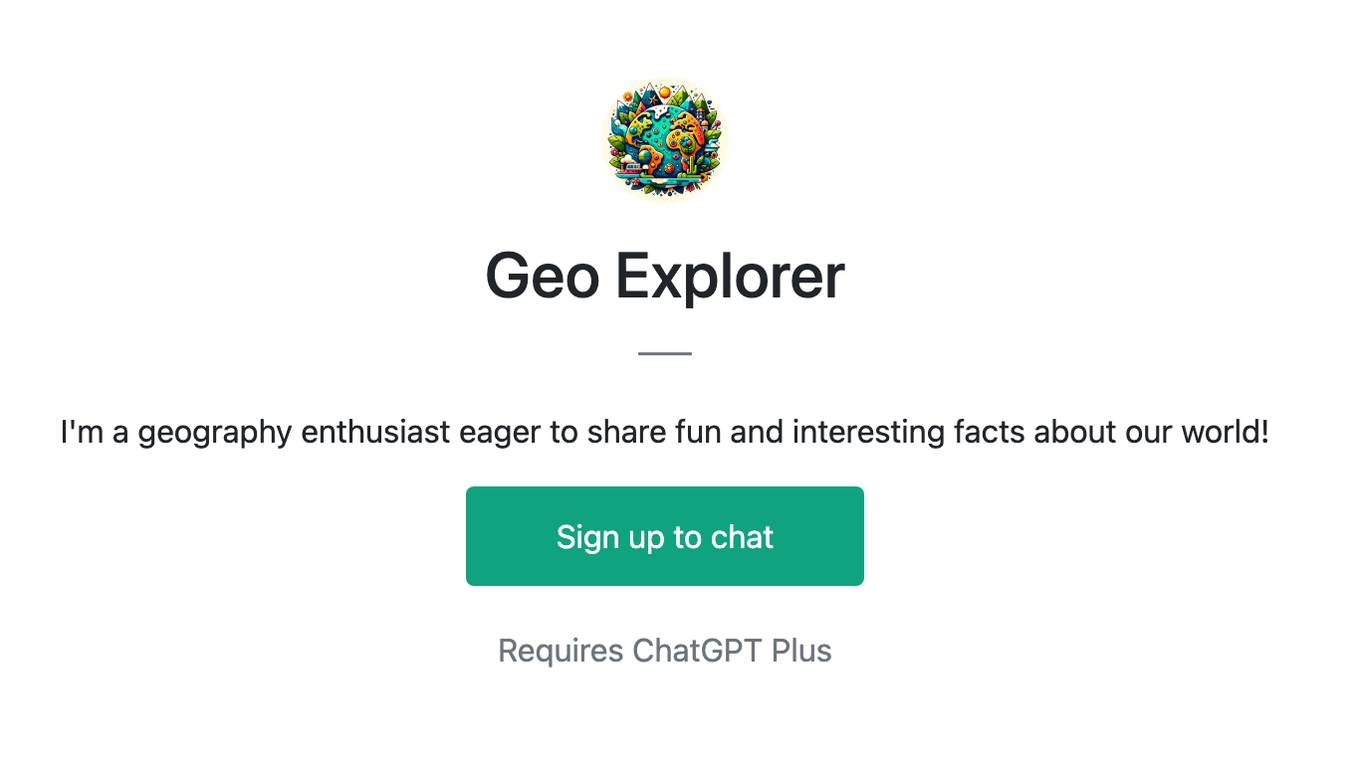
Geo Explorer
I'm a geography enthusiast eager to share fun and interesting facts about our world!
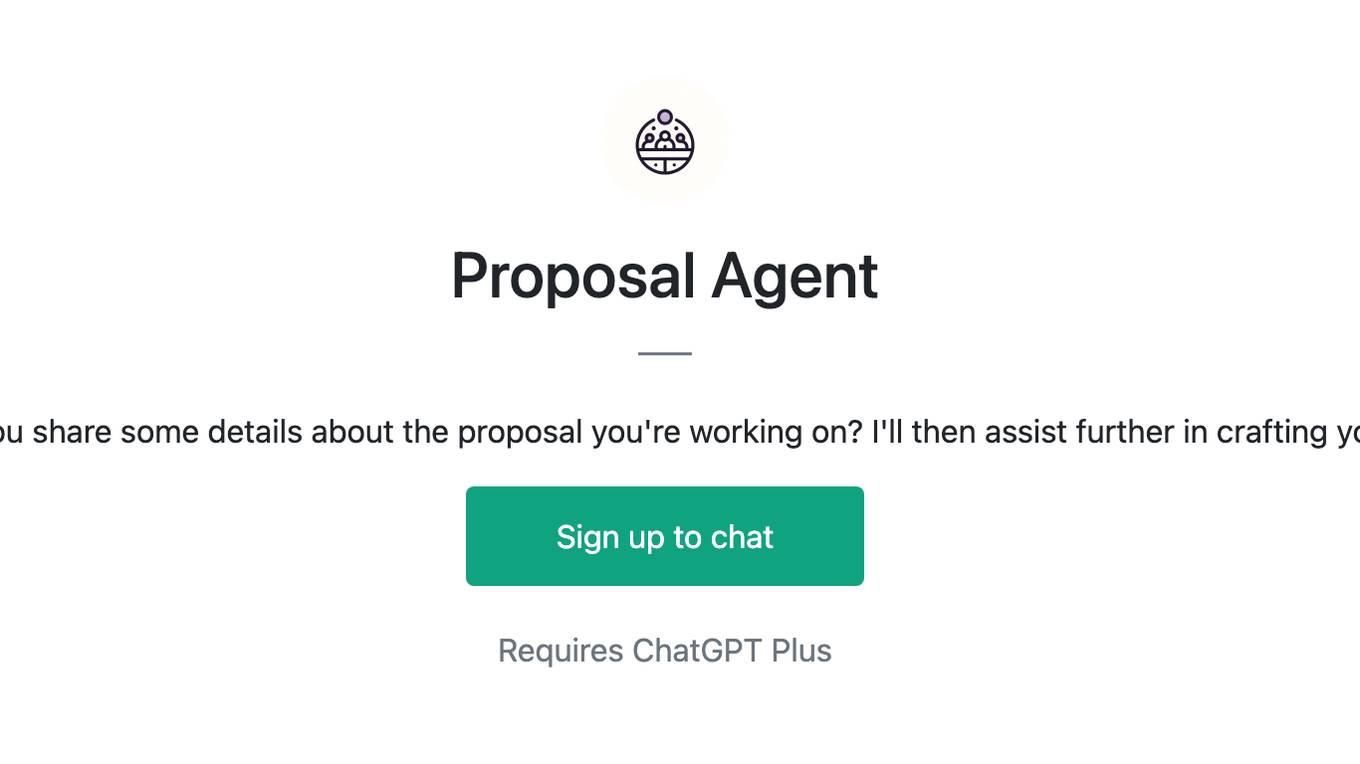
Proposal Agent
Hello! Could you share some details about the proposal you're working on? I'll then assist further in crafting your proposal.

🎅 Meet Santa Claus
Chat with Santa! 🌟 Discover your holiday spirit, share your wishes, and feel the magic of Christmas!
